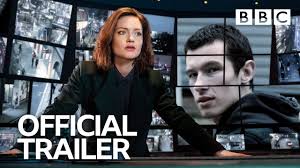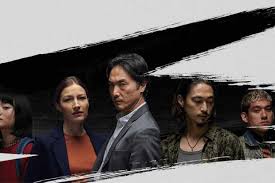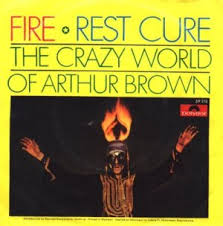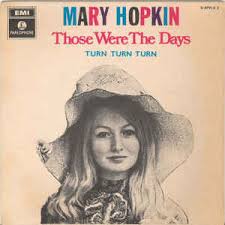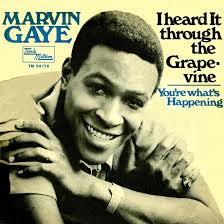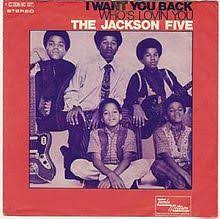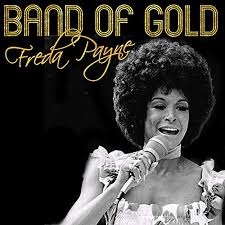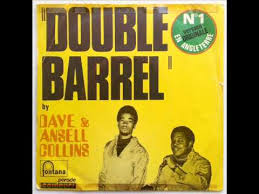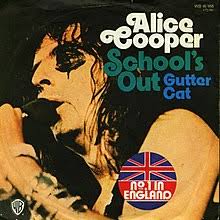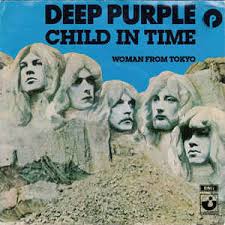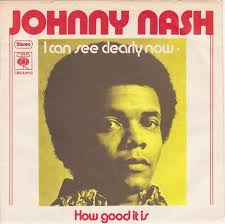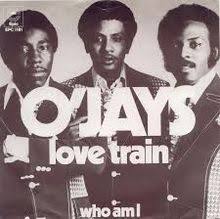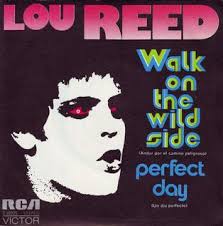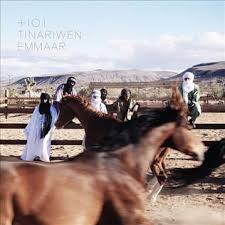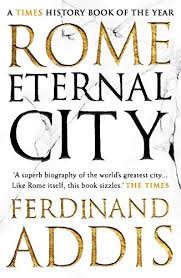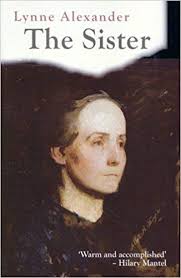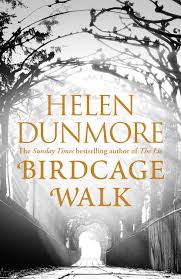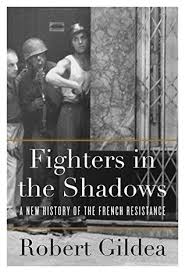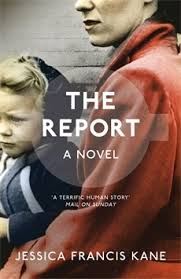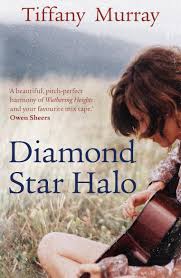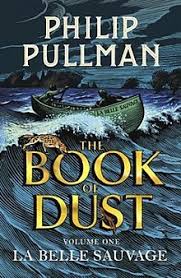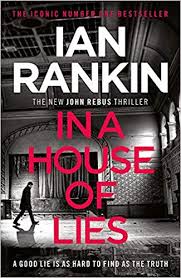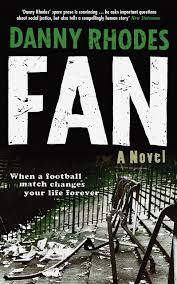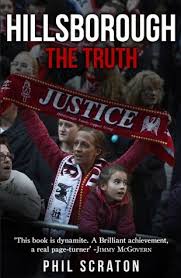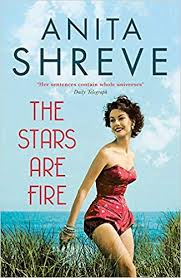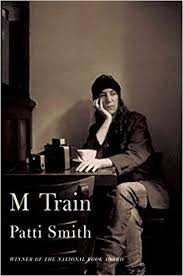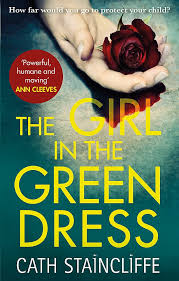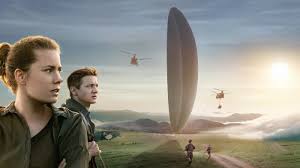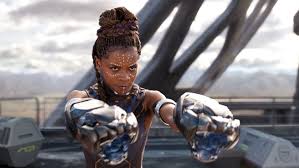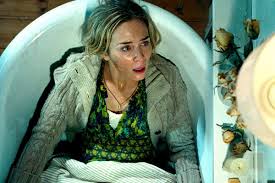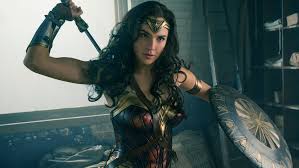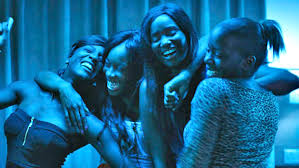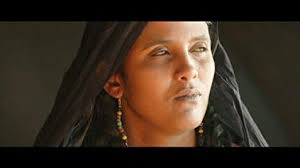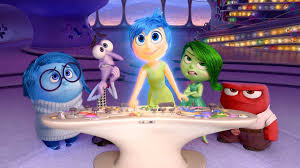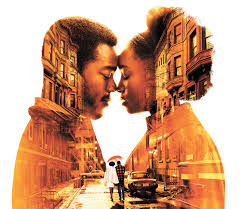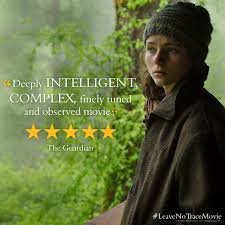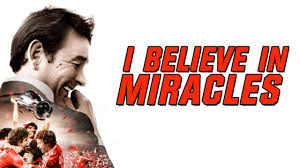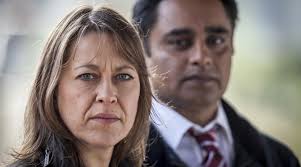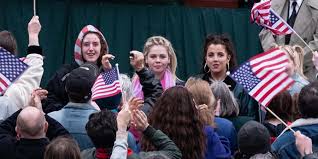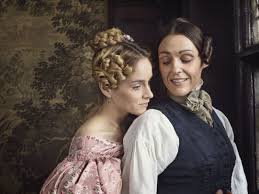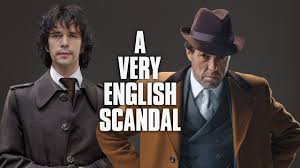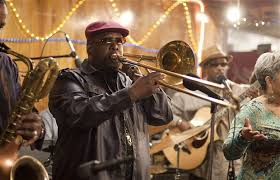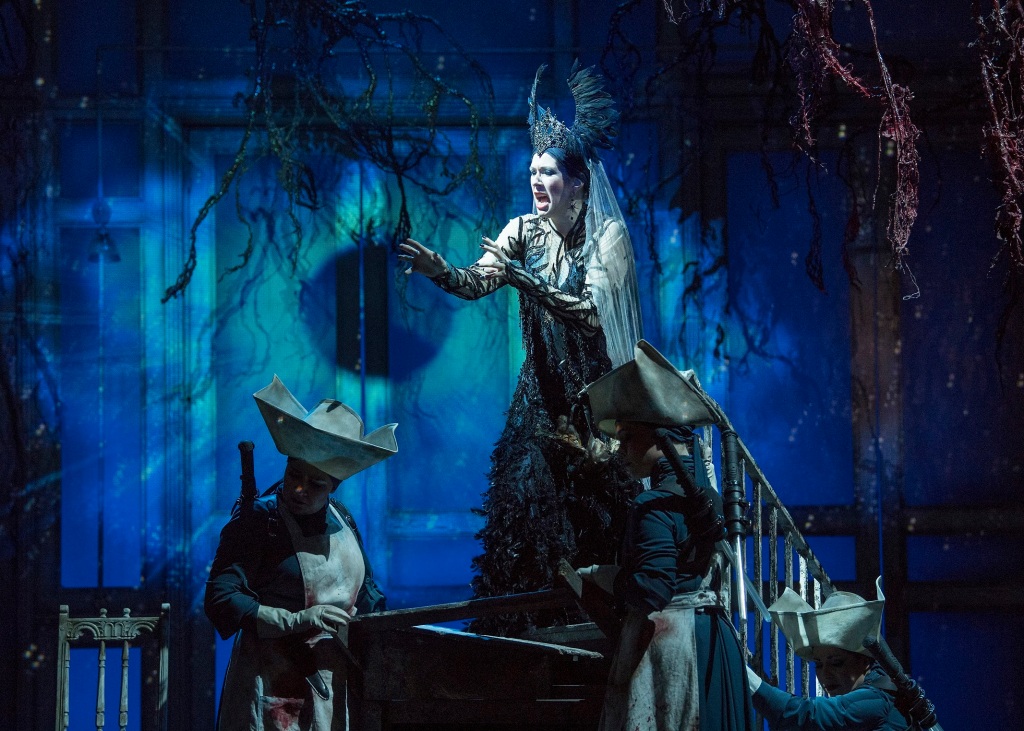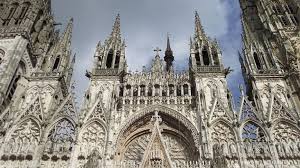Archive for category Music
Music Nights
Posted by cathannabel in Music on December 22, 2023
Each year I write about the books I’ve read, and the films and TV I’ve watched. Obviously I hope to entertain others when I do this, but it’s also to remind myself, to ensure that I’m not just consuming and forgetting, but thinking about them, analysing how (if) they work, as well as my own response to them. It’s very nerdy, I know, but that’s who I am.
But I don’t do the same for the music I’ve listened to through the year. I often at least list the live gigs I’ve been to, whether that be Tramlines festival or Opera North, but I don’t write about music. Part of that is that I’ve spent many years as a student writing about books and films – I kind of know how to approach that. When I try to write about music, I find I’m only really writing about my response to it (it made me feel joyful/weepy/like dancing/at peace…) rather than analysing the music itself, and that’s fine, because music defies being pinned down by words.
But music is a huge part of my life. And it was a huge part of my life with Martyn, and that’s perhaps why I am thinking about it more now that I’m without him.
It was taken for granted that one or two nights a week would be devoted to just listening to – ‘background music’ was an oxymoron to him – and talking about the music (other conversational avenues were discouraged, other than for emergency purposes). And those music nights took a particular form. With a vast CD collection to choose from, we had to find a way of listening not just to the usual suspects but to the more obscure artists, or at least the more obscure albums by more familiar artists. Not only that, but it meant that we could swerve from one century, one continent, one genre to another, never get stuck in one particular groove.
So the random music generator came into being. Dice were rolled to determine which column, which shelf in that column, and which album on that shelf would be played. Some leeway was permitted, if the selected CD had been played very recently, for example, but otherwise it was a given that we would play whatever was chosen. There were also occasions on which other mechanisms for choice were allowed, such as the recent death of a musician, in which case the choice would be from within her/his oeuvre, but favouring the more obscure rather than the best known work. It was a serious business.

And there was another wrinkle too. He was the wielder of the dice, and therefore obviously knew what it was we were about to hear. I didn’t, and so I was invited to guess (what, or at least who). This ranged from easy peasy to absolutely impossible, and getting it wrong risked a raised eyebrow of disdain. But it made me listen, more intently than I would have done otherwise, and think about what I was hearing, and that was the point really, not one-upmanship, given that he already knew the answer, but listening as a serious business, as the main business of the evening rather than as a background to doing other things.
When he died, I realised straight away that music nights were going to need a major rethink. First of all, the whole idea of sitting on my own and listening to music that intently seemed impossible, so laden with memories and with the awareness of that huge loss, that I couldn’t see how I would be able to face it. And when I did venture to put CDs on, I initially headed for the known rather than the obscure, the comfort of familiar voices and riffs.
My first musical project after he died was to choose the music for the funeral. It was clear to us from the start that the ceremony would be more music than words, because it was about him. And which music – that felt like a huge responsibility. How could I risk choosing something that would merit a raised eyebrow of disdain? But we came up with a list – and booked a double slot at the crem to allow enough time for all of the tracks, as well as the two poems, and the eulogies that each of the three of us had written.
- Philip Glass – Warszawa (3rd movement, Low Symphony)
- The Beach Boys – Our Prayer
- Stan Tracey Orchestra – Come Sunday (Ellington composition, instrumental version)
- Gerry Mulligan Quartet with Chet Baker – My Funny Valentine (instrumental version)
- Miles Davis – Florence sur les Champs-Elysée
- The Beatles – In My Life
- Jimi Hendrix – Pali Gap
And then there was the playlist for the wake. We ended up with about 13 hours of music, according to Spotify. Played on random, it bounces around across the decades, the continents and the genres (OK, there are no symphonies, concerti or string quartets in there). Putting it together was a labour of love. Tracks weren’t selected for poignancy or solemnity, rather the whole thing was a celebration of the music that we’d shared, that we both loved. Listening to it now, there are tracks I’d entirely forgotten that we’d included, and tracks that seem to come up every time. There are tracks that he loved more than I did, and vice versa. In other words, it is a true reflection of our musical lives together. And every now and again I am overwhelmed by the sadness that we’re not listening together, not any more.
I’ve had weeks since then when I listened to no music at all – something that would have been unthinkable before. But I knew that I needed to find it a place in my new life, and I have done. I’ve been to concerts on my own or with friends or family, I’ve been to Tramlines festival twice. Those have been comparatively easy. Once I’m there, sitting (or standing) and listening intently is the only option, whereas at home it’s too easy to persuade myself that I’m not really in the mood and reach for the TV remote instead.
But I had to have music nights again.
I found the dice, and I use those sometimes to narrow my search – when you have a whole dining room wall of CDs, it can be too daunting to try to pick something, so letting the random music generator do its work takes some of the pressure off, and elicits some surprises, albums I didn’t know we had, that I can’t be sure I ever listened to before, as well as things I know and just hadn’t listened to in years. I listen on Saturday afternoons to Radio 3, where there’s a run of programmes that deliver an eclectic range of music (This Classical Life, Inside Music, Sound of Cinema, Music Planet and J to Z) and on Sunday afternoon to Jazz Record Requests, and often these programmes suggest where my music night might go. There are other prompts – often something during the week reminds me of an artist or an album and so I start to make a little pile of CDs, to make it easy to get started and not to cop out.
The thing is, there isn’t any music that has nothing to do with him, and with our life together. Right from the start music was a vital connection between us. I remember going round to his house, with a few other people including my then boyfriend, and Martyn playing Bowie songs on the guitar. I think it was all settled in that moment, really. We introduced each other to the music that each of us loved – he played me Hendrix, ELP and Crimson, I brought him Motown, Osibisa and Simon & Garfunkel. We were each open to the other’s music, then and always. Actually, he was open to all music, then and always (although he never did quite come to terms with opera – the music is great, he’d say, if they’d just stop the warbling). Together, over the years, we explored jazz in its many forms, world music from literally the world, the whole gamut of pop, rock, soul, indie, blues, R&B, prog, folk-rock, jazz rock, post-rock, rap, country & western, the classical repertoire from Tallis through to Caroline Shaw…
So music will always be about me and him, even if I’m listening to things he never got to hear. I’ll always be having a conversation in my head with him when I’m listening, when there’s a bit I particularly like or that I think he’d particularly like, when I’m not sure I’m really getting it; whatever I’m thinking and feeling about the music is a conversation with him.
He listened differently to me, primarily because he was a musician. He could get music out of any musical instrument and he couldn’t see a musical instrument without wanting to play it. He never ‘learned properly’ as his mum (a piano teacher) always put it, but he could improvise on any fragment of a tune, which she couldn’t (his dad could though – he used to sit at the piano and vamp away a la Charlie Kunz). He was in two bands (on guitar or keyboards), Red Shift (with Paul and Chris), and the Conduits (with Jonathan (Yozzer), Tim, Jon, Dan and Lenny, and various guest musicians). There were a few gigs (at one of which I got to utter the immortal words, ‘I’m with the band’) but a lot more jam sessions, which suited Martyn well. Like his idol, Hendrix, he would jam with anyone who was willing to go where the music took them, seeking not perfection but the exhilaration of making something new. He recorded every one of those jam sessions, and would get home, and listen to the recordings, and transfer them from mini-disc to CD, for posterity (his brother Adrian is curating the very considerable library of recordings that he left behind). I haven’t yet played any of the recordings – I’m not ready to hear him, not just yet.
Martyn never really understood why I was content to be a music listener and not a music maker – I tried, but strumming chords on the guitar was, for me, a glum business and I could only follow what I was told to do, I could never launch myself into a jam. But though we listened differently, we always listened together.
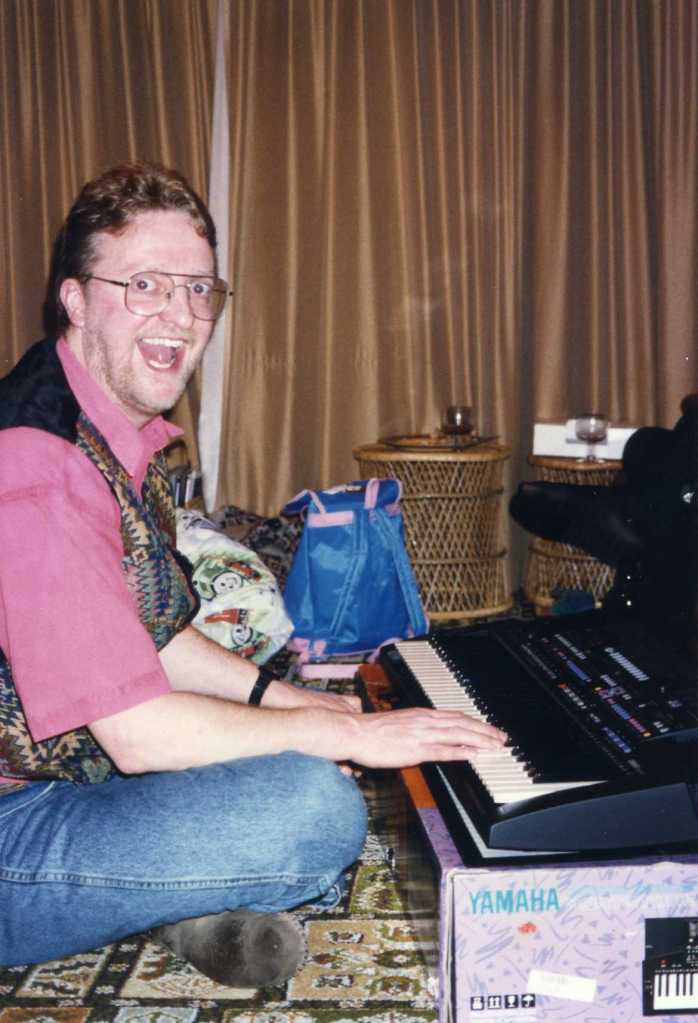
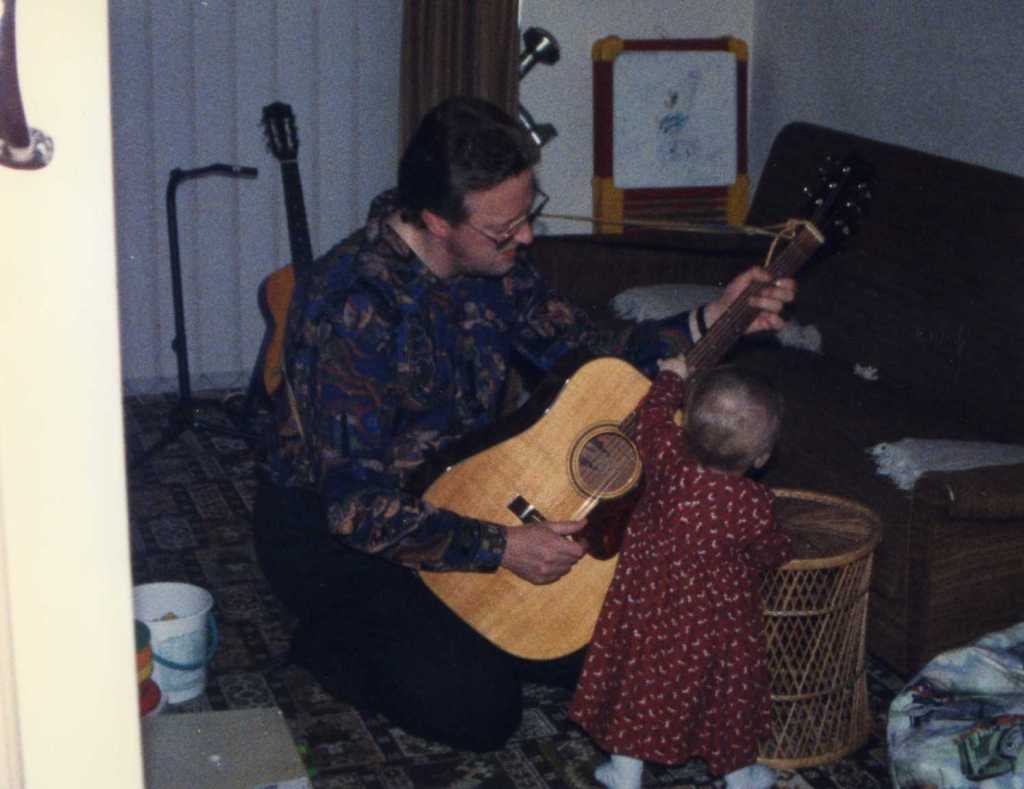



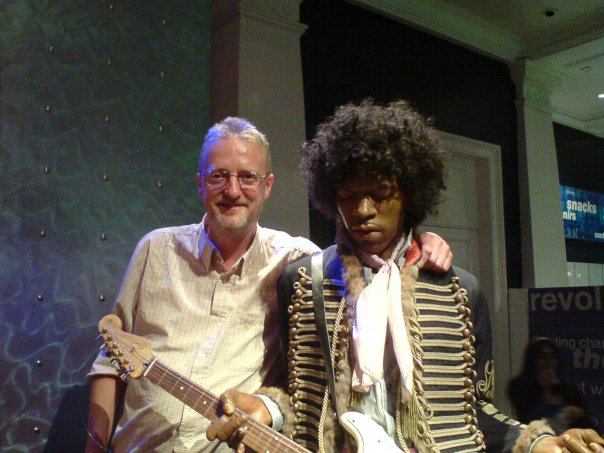
Listening to music without him is a hazardous business – sometimes it’s too much. In all the exhilaration of discovering new music, the pleasure of hearing familiar music, I can be ambushed by sadness.
But if the alternative is to treat music as a background, to deny it its place at the heart of my life, to deny myself that exhilaration and delight, then I’ll settle for being ambushed. I don’t go in a lot for saying ‘it’s what he would have wanted’ – all too often that’s a way of quietening one’s unease about decisions that now have to be taken alone – but in this case, there’s no doubt. He would not wish for me in any circumstances a life without music, the thought would appal him. And for me, it would mean losing him in a most profound way.
When I told a friend how I was feeling about listening to music alone, he pointed out that since long before Martyn died, I have tweeted (as we used to call it) and posted on Facebook about our evenings’ listening. And how very often, someone out there connects with what I’ve posted, and enthuses with me, or suggests other things I might enjoy. So perhaps I’m not alone, not quite, after all.




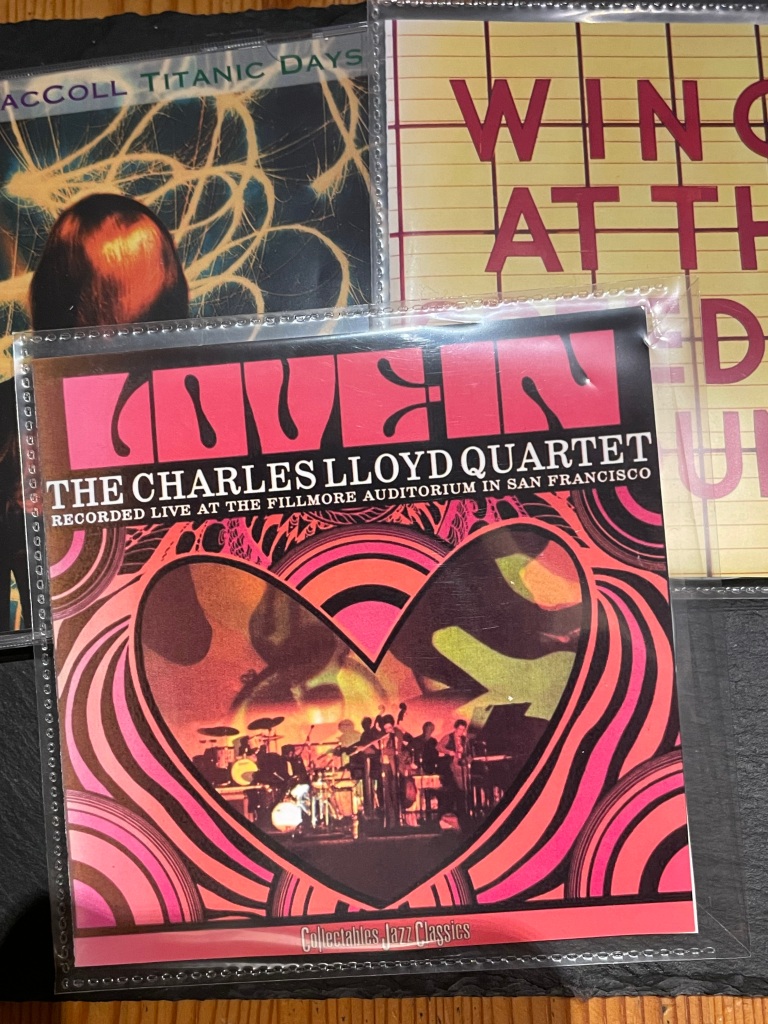
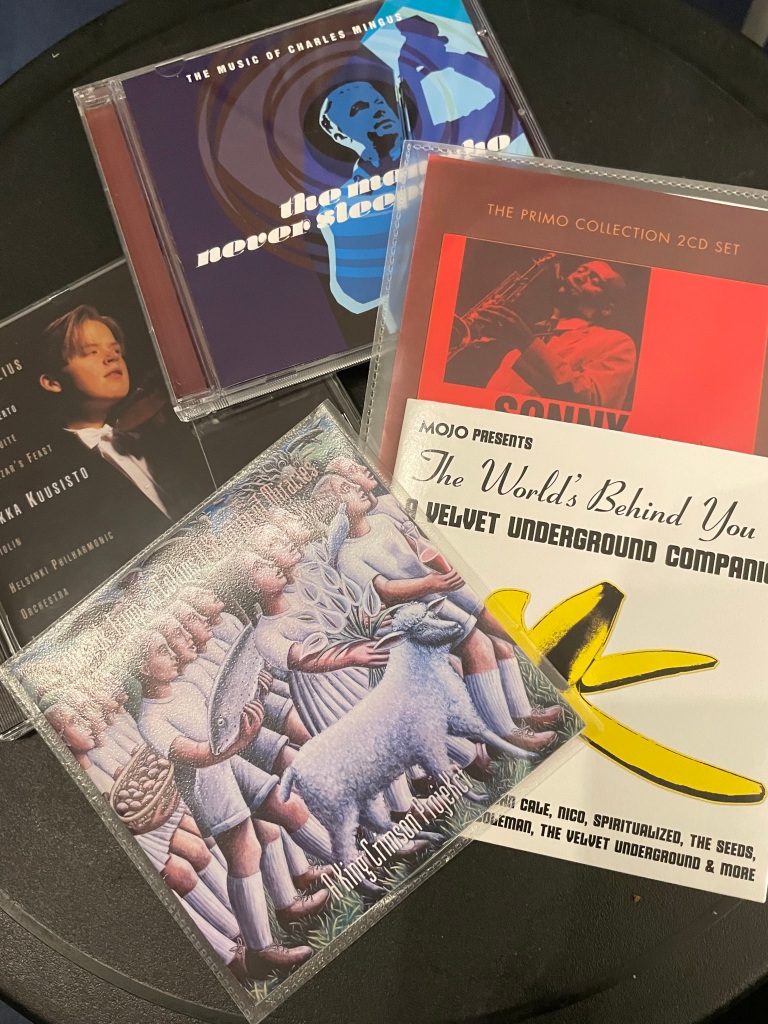
2023 music nights, at home, 99% CD with the occasional foray on to Spotify, accompanied only by a glass or several of red wine (and random strangers via social media), brought me:
Arooj Aftab, Arnie Somogyi’s Ambulance, Daymé Arocena, Bacharach, Bagadou (French bagpipes), The Band, Bartok, The Beatles, Beats & Pieces, Jeff Beck, Tony Bennett, Art Blakey, Carla Bley, Bloc Party, David Bowie, Jean de Cambefort, Charpentier, Carmen Consoli, Corelli, David Crosby, Miles Davis, Depeche Mode, Egg, Duke Ellington, Ensemble Instrumental National du Mali, Espen Eriksen Trio, Bill Evans, Graham Fitkin, Ella Fitzgerald, Flobots, Marvin Gaye, Genesis, Gentle Giant, Ghanaian highlife, Philip Glass, Charlie Haden, Herbie Hancock, Handel, Richard Hawley, Jimi Hendrix, Henry Cow, Indigo Girls, Isley Brothers, Jacszuk Fripp & Collins, Laura Karpman, Georgi Kurtag, Ant Law & Alex Hitchcock, Charles Lloyd, Yvonne Lyon, Kirsty MacColl, Mahavishnu Orchestra, Massive Attack, Curtis Mayfield, Joni Mitchell, various Mojo CDs, Monteverdi, Motown, Sinead O’Connor, Pixies, Pogues, Prefab Sprout, Projekt X, Queens of the Stone Age, Rachmaninov, Zoe Rahman, Red Rum Club, Max Richter, Sonny Rollins, SBB, Ryuchi Sakamoto, Scenes in the City, Self Esteem, Shakti, Sharp Little Bones, Caroline Shaw, Andy Sheppard, Wayne Shorter, Shostakovich, Sibelius, Smiths, Songhoy Blues, Stax, Steeleye Span, Sugababes, James Taylor, Teenage Fanclub, Telemann, Television, Temptations, Jake Thackray, Tinariwen, Tina Turner, Erkki-Sven Tuur, Unthanks, Velvet Underground, Vivaldi, Weather Report, White Stripes, Wings, YMO, Zutons






2023 gigs, some solo, most with family/friends (Arthur, Adi, Janie, Aid & Ruth, Jennie & Michael, Sam & Jen):
A highlight of Sheffield’s classical music year is the Chamber Music Festival (Crucible Playhouse), this year boldly curated by Kathy Stott. Featuring Ensemble 360 + Tine Thing Helseth (trumpet), Ruth Wall (harp), Amy Dickson (sax), with a fantastic programme of familiar and totally unfamiliar music. The concerts I attended featured: Barber, Boulanger, Coleridge-Taylor, Dvorak, De Falla, Fitkin, Francaix, Glass, Jacobsen & Aghaei, Martinu, Menotti, Meredith, Milhaud, Rachmaninov, Rodney Bennett, Saint Saens, Schubert, Schulhoff, Scott, Wall, and Weill
Music in the Round (Upper Chapel) – Ligeti, Dorati, Lutoslawski and Farkas
Sheffield Jazz (Crookes Social Club) – Beats & Pieces, Ant Law & Alex Hitchcock, Clark Tracy Quintet, Anthropology Band, Ivo Neame’s Dodeka
Platform4 Music (Arts Tower) – a few years back we went to a performance of Terry Riley’s In C, using the Arts Tower’s Paternoster lifts. For this gig, the same group used the Arts Tower space, and the lifts again, to create interweaving lines of music, receding and approaching, clashing and harmonising.
Self Esteem (O2) – one hell of a gig! I’d seen them/her before at Tramlines 2022, and was blown away (I’d also seen her a few years earlier as part of Slow Club, also at Tramlines). Outstanding.
Under the Stars (Yellow Arch) – I’m a trustee of Under the Stars, a charity that works with adults with learning disabilities through music and drama. This was a gig from one of the music groups and it was loud and joyous. We also had a slot at Tramlines (see below), as in previous years.
Tramlines (Hillsborough Park, which was muddy by the time we all arrived on Friday afternoon, and a complete swamp by the time we called it a day on Sunday pm, but it was grand, and we’ve already bought our tickets for next year). We saw: Bloc Party, Blossoms, Blu3, Alice Ede, Everly Pregnant Brothers, Safii Kaii, Mary Wallopers, Kate Nash, Pale Waves, Red Rum Club, Sea Girls, Sugababes, Under the Stars, Zutons
Jacqui Dankworth & the Carducci String Quartet (Howard Assembly Rooms) – a lovely gig to accompany Sonia Boyce’s exhibition, Feeling Her Way.
Fiona Bevan & Adam Beattie (Café #9) – a tiny, perfect venue and a perfect gig from this duo, vocal harmonies, double bass, piano and guitar
Hailu Ni Trio (Café #9) – Chinese soprano Hailu Ni accompanied by piano and violin, performing Tosti, Puccini, Chopin, Ponce, Tchaikovsky, Schubert, Strauss, Mancini, Lewis Capaldi, Christina Perri & Ryuichi Sakamoto.
Tom Townsend & Friends (Café #9) playing the songs of James Taylor and, by extension, Carole King and Joni Mitchell (‘River’). Gorgeous songs. I may have had a little cry when he sang ‘You’ve Got a Friend’.
Red Rum Club (Leadmill) – we’d seen them at Tramlines and knew we were in for a great night – huge energy, great tunes, and a trumpeter, what more could one ask?
Unthanks in Winter (Octagon) – fragments of familiar carols merging into Unthanks compositions or much older, less familiar carols, dream-like, as if you’re slipping in and out of your own time.
Here’s to 2024, to many more gigs, and many more music nights. Thanks, always, to Martyn, without whom there is so much music I would never have heard, and who helped me to really, really listen.
Ring out the old, ring in the new
Posted by cathannabel in Events, Music, Personal, Theatre on December 31, 2022
Every week, for the last three and a half years, I’ve posted on Facebook about ‘Good Things’. This isn’t a ‘let’s not talk about the bad stuff’ exercise – it acknowledges, explicitly, that the reason I’m doing it is because there is a lot of bad stuff, globally and personally, and it is thus important sometimes to home in on and hold on to the good that is there, even if that good stuff seems rather small and trivial in comparison to war and climate change and poverty and everything. It’s not ‘always look on the bright side’ so much as ‘always look for the bright moments’. Older readers might think of the 1913 children’s book Pollyanna, whose central character is known for being relentlessly cheery at all times. Whilst this can be rather cloying, and I would refute the notion that there is something good to be found in every situation, the idea that it is healthy to remind oneself that there are good things is a valid one. Which is why I’ve kept those posts going, and why they invariably get likes and comments, and people urging me to continue.
It’s certainly not as if the period during which I’ve been doing this (and there were sporadic efforts before, my ‘reasons to be cheerful’) lent itself particularly to optimism, on any front. The world has been going to hell in a handcart faster than ever, it would seem. And on a personal level, when I posted my first ‘Good Things’ my youngest brother was terminally ill with cancer. He died the following February, just before the pandemic deprived us of so many of the things that might normally bring us comfort in hard times. Then, of course, in October 2021, I lost my husband. He died less than 24 hours after I’d posted that week’s Good Things, and when I re-read it I realised that despite the horror of what had happened, I stood by everything I’d said. Those good things were real and true and not invalidated by the huge Bad Thing that had engulfed us. So I’ve carried on.
It’s hard to find much on the national or global scale to celebrate – at most, some things didn’t turn out quite as badly as we feared (the US mid-terms, notably). Our government was incompetent and corrupt, chaotic and callous, as we’ve come to expect, and the usual people are suffering as a result – don’t be poor, don’t be disabled, don’t be old, don’t be sick, and for heaven’s sake, don’t be a refugee… Conspiracy theories, whether about climate change or vaccines or anything else one can think of, seem to be multiplying and spreading more rapidly each year, not helped by the takeover of Twitter, already an excellent breeding ground, by a leading conspiracy theory enabler and exponent. Ukraine is still suffering under – and fighting back against – the Russian invasion. Women in Afghanistan are shut out of the universities. It is easy to despair.
Of course there are always good people standing up for the vulnerable. The RNLI will carry on risking their members’ lives to save those whose dinghies are capsizing in the Channel. Food banks will continue handing out essentials to families who can’t make ends meet. Individuals and organisations will continue to provide safety nets, to challenge bigotry, to tell the truth and to shame (or at least try to shame) the powerful into using their power for good, and the brave will stand up anyway, in Iran and Afghanistan as in so many other places, whatever the risk.
In my own life, despite the sadness, I’ve had good things.
I got a new knee in February and (after a short but tough period of recovery) that gave me the confidence to be braver and more adventurous than I would have done otherwise. I went to Wembley to the Championship Playoff final, with my son. (The football has actually been a Good Thing in 2022, the first year for decades when I could have said that.) I went to Progfest with my brother in law and to the Tramlines music festival, with my son and with friends. I travelled to Rome, on my own (but was met by my brother, with whom I stayed). I would have done none of those things without the op, I would have been too scared, not only of the pain, but of my knee suddenly refusing to bear my weight, or of falling. That fear nearly paralysed me when he died – I could see myself so easily becoming virtually housebound, dependent entirely on others to get around, and that hasn’t happened.
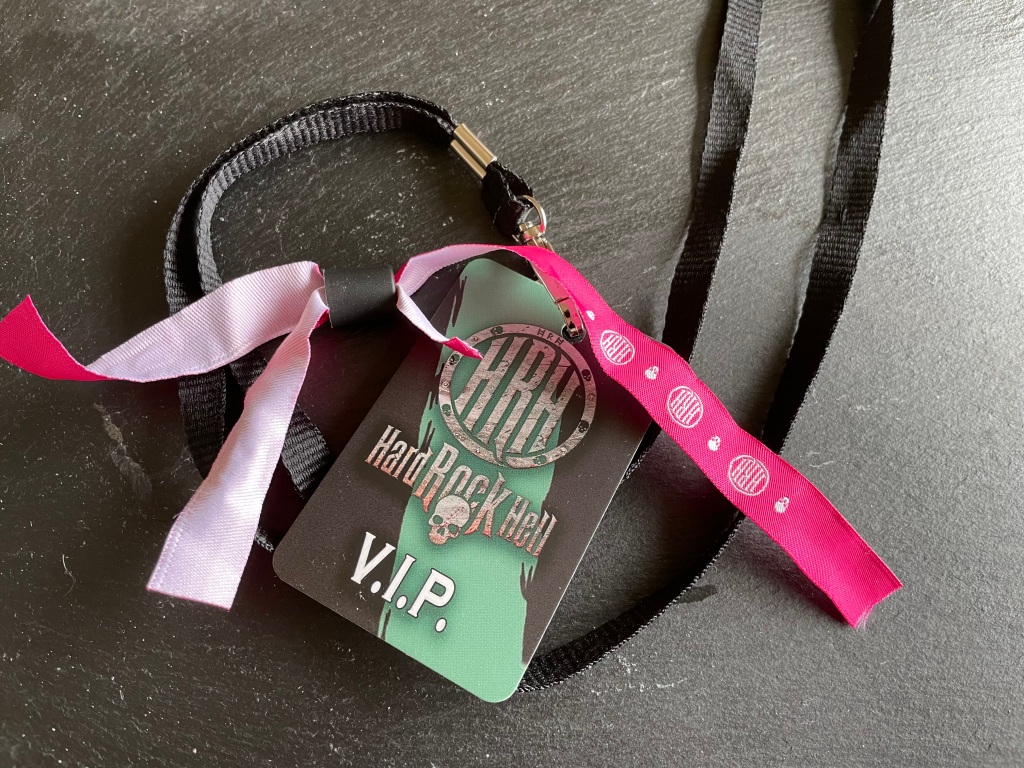





I have needed more help this year, especially without a car or someone to drive it, and I’ve always found the help that I’ve needed, sometimes by asking very directly for it (anyone taller than me – i.e. most adults – entering the house is likely to be greeted on the doorstep with a request to change a light bulb or lift something down off a high shelf), at other times because some nice young man or woman has seen me struggling with a suitcase or whatever and has offered assistance. I’ve also found someone to help me with the cleaning, someone to help me with the garden, a handyman and a decorator.
I finished the PhD, submitting just over a week before he died, and had my viva in May. I’m very proud of the thesis, and I absolutely could not have done it without his support, in big ways and small – so many times I was writing away, lost in my work, only to realise that he had snuck in, delivered a hot cup of tea or coffee and snuck out again, without breaking my train of thought.
I’ve been to the theatre, to a stunning production of Much Ado, by Ramps on the Moon which used its cast of (mainly) deaf and disabled actors inventively and boldly, and tweaked the text accordingly. Much Ado works or doesn’t depending on Beatrice and Benedick, and here both were outstanding and unforgettable. The Guardian reviewer described Daneka Etchell (who is autistic) as ‘the most compelling Beatrice you might ever see’, and she was responsible for an extraordinary scene, when, in her distress at the injustice being inflicted on Hero, she starts stimming. Both her anguish and Benedick’s tenderness in trying to help calm her were very moving.
We very much enjoyed a performance by Under the Stars, an organisation who we supported with Martyn’s memorial fundraiser, who are an arts and events charity for people with learning disabilities and/or autism, running music and drama workshops and nightclubs. The play was The Many Journeys of Maria Rossini and it used words, music and dance, exuberantly and engagingly, to tell the story. Under the Stars band also performed at Tramlines.
Final theatre outing of the year was to Richard Hawley’s musical Standing at the Sky’s Edge, which we’d somehow missed when it was first produced at the Crucible in 2019. We loved it. The musical weaves together the stories of some of the inhabitants of Sheffield’s Park Hill flats, over five decades, telling those stories through some of Hawley’s songs. The action is beautifully choreographed, the singing is marvellous, and it builds to a very moving climax. Obviously this piece has special relevance and resonance for Sheffielders, but it goes beyond that – every major city has communities like Park Hill.
I’ve done my usual summaries of what I’ve read and watched over the year. As far as listening to music at home goes, I’ve tried to develop my own approach to music nights, which were so much about our shared enjoyment of music that initially I couldn’t see at all how I would do it. Now, I pick a few things over the course of the week, prompted by someone mentioning an artist or a band, by an artist’s death, or some other kind of event, just so that I don’t get paralysed by the vast choice when I look at our CD wall. I listen when I can to the Radio 3 weekend programmes we used to love, to Inside Music, Sound of Cinema, Music Planet, J to Z, Jazz Record Requests, and these also often suggest what I listen to from our collection.
Highlights amongst the music that I’ve heard live this year:
- Beethoven String Quartets plus a piece by Caroline Shaw (‘Entr’acte’), in a Music in the Round concert which I sponsored in Martyn’s memory, at the Crucible in May
- Focus, the highlight of the Progfest in April. Still led by Thijs van Leer, who may not be able to reach all the high notes these days but is still a great performer, and the band (which included Pierre van der Linden, another veteran) was great and of course the music brought back so many memories of listening with Martyn.
- Jazz Sheffield gigs from Laura Jurd, Zoe Rahman and the Espen Ericksen Trio with Andy Shephard, all excellent.
- Tramlines highlights: my old favourite, the Coral, and new favourite, Self Esteem.
- A rare orchestral concert, at a great venue, the Auditorium in Rome: Gershwin, Bernstein and Stravinsky.


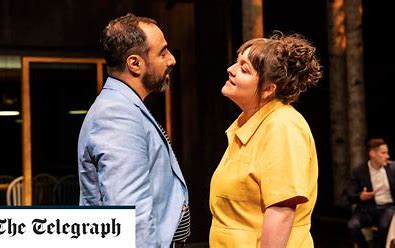

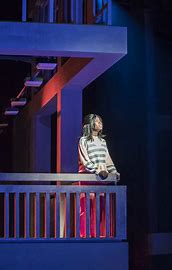

Last New Year’s Day was one of the hardest to wake up to in all of the days since he died. Knowing that I was about to start on a year without him, the first year without him since 1973… It was bleak. Perhaps, whilst this NYE/NYD will acknowledge the sadness, it may be easier. I hope it will be less bleak, less raw.
So, allons-y to 2023. I will formally graduate (for the last time, definitely, categorically) on 11 January, and my next project will be to look for a publisher for a version of the thesis. I’ll have chapters published in two forthcoming books, both on W G Sebald. I’ll travel, to see friends in Scotland, to see family in various parts of the country, maybe a city break in Europe. I’ll go to two family weddings. I’ll finish phase 2 of the decorating, maybe even phase 3. I’ll carry on sharing the cultural riches of Sheffield with friends and family.
Without being Pollyanna-ish, I do know how very lucky I am, to be surrounded by people who want to and do help me, emotionally and practically. I am thankful for them, every day.
For you, I wish for health and strength, for peace and comfort, for love and support.
In 2023 I wish, of course, for a world without war, a world where people are not persecuted for their beliefs, or simply for who they are, a world where women can be safe on the streets and in their homes. I wish for action on climate change, before it’s too late. That’s a lot, I know.
But as we go into another new year I think, as always, of this poem, which gives me hope.
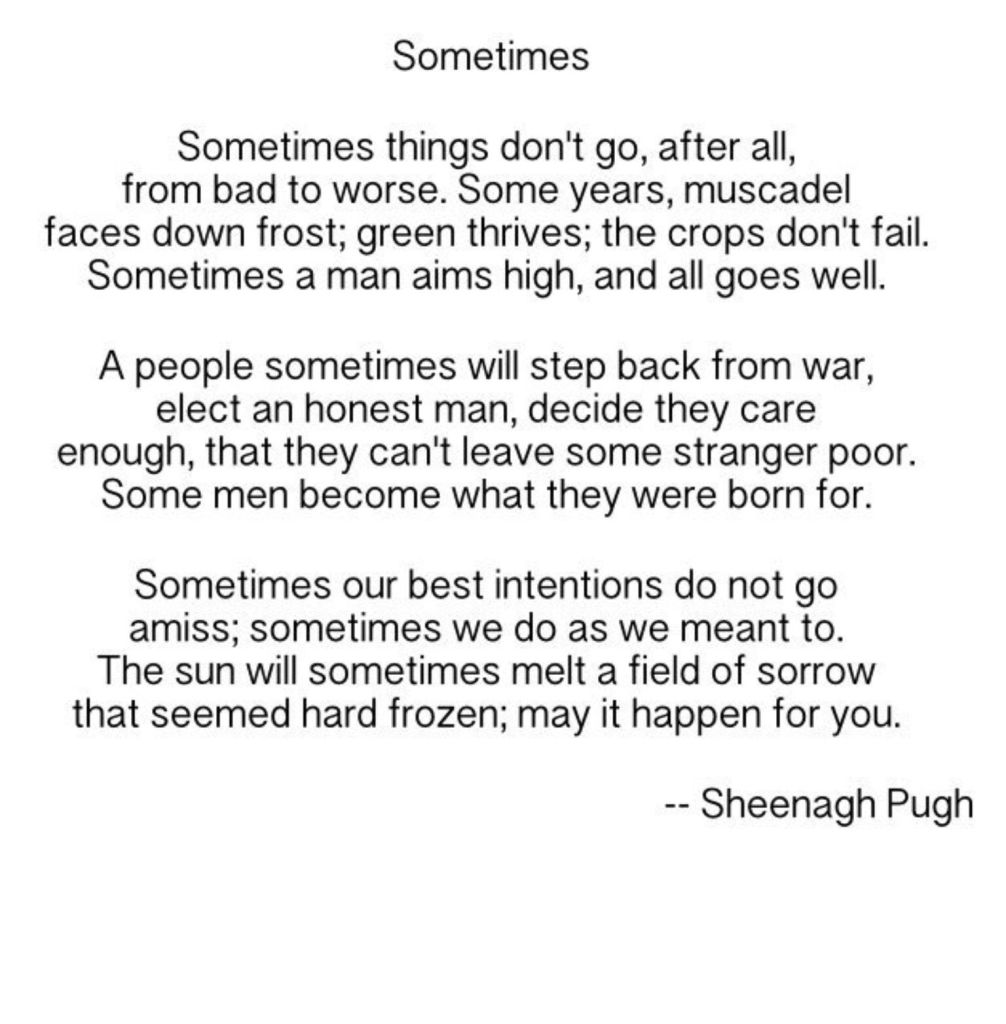
2020 On Screen
Posted by cathannabel in Film, Music, Personal, Television on December 27, 2020
Normally, there’s quite a bit about cinema in this review of the year on screen. This year was, obviously, different, and whilst I could have watched more films on screen via DVD, for a host of reasons I found refuge in telly, in short bursts of drama rather than longer forms. My concentration was shot in the first part of the year, with the loss of my brother, and the onset of the pandemic.
I got used to the latter, to the extent that those of us who weren’t directly affected got used to it (finding new routines involving lots of local walks and evenings in, as we had the luxury of no work or financial pressures, plenty of space indoors and out, and no one close to us being ill).
As for the former, grieving isn’t a linear process, one can seem to be fine and then walk into a wall that wasn’t there before, one can seem to be fine and then be ambushed by a memory, an image, a word. So there are things we’ve avoided watching because, well, why deliberately provoke it? The exception to this was Little Women, of which more below, which we saw at the cinema very early in 2020, in full knowledge of how it would foreshadow the inevitable loss that we were facing.
The Small Screen
Please note: this reflects what we have watched in 2020, and thus includes old stuff that is circling eternally on ITV 3 and Drama, stuff from 2019 that was still sitting on our BT Vision Box as the year turned, as well as this year’s TV. This is the telly that has diverted, amused, intrigued, enlightened, moved and informed us during 2020. I’ve missed out the things that we started watching and then decided life was simply too short to waste time on, but, whilst I don’t normally spend much time talking about things I haven’t liked, there are a few dishonourable mentions here, mainly for things that I expected to like and in the end was very cross with. I’ve linked to some reviews, where they are not too spoilery, but as always, caveat lector.
You know you’ve watched too many episodes of Midsomer Murders when the ITV 3 intro causes eruptions of rage every single time it invites us to go to the ‘infamous village of Midsomer where only one thing’s for certain’. As any fule no, Midsomer is not a village but a county. I mean, that body count would be just too improbable in just one village, wouldn’t it? Another clue is when you overhear someone saying ‘Oh, hello, what are you doing here?’ and turn abruptly, expecting imminent violence with a pitchfork or perhaps a giant cheese. It’s very silly, and the writing is variable but at its best, it knows exactly what it’s doing, and there are lots of little in-jokes about the bloodthirsty nature of these picturesque villages (like the incoming DS from the Met who is shocked at the carnage). We’ve re-watched all the Nettles series, which allows us to marvel every episode at how Joyce manages to get involved in every single case, because she is a member of every single committee, book club, art class, choir, am dram group, and so forth in the entire county. I have my suspicions that she is actually the mastermind behind the whole murderous business.
There were lots more weighty contenders, of course. Foreign language offerings included Nordic crime from Twin, Before We Die, Wisting, and Below the Surface, and best of all The Bridge, whose first two series we had missed when they were first shown (I know! What were we thinking?) and enjoyed very much, whilst concluding that the plot, especially perhaps in Season 2, was a little too complex for its own good and if one was being picky one might mention a couple of possible holes. But one won’t, and one is now re-watching series 3 and 4. Saga is, of course, a most wonderful creation.
Wallander is obviously Nordic but Young Wallander is in English. It’s an oddity – if we hadn’t been alerted before watching we would have been most bemused by the contemporary setting. There are nods to ‘our’ Wallander (the father who paints the same scene over and over again, the girlfriend called Mona) but clearly this is not the equivalent of Endeavour. It was enjoyable, if not unmissable. Van der Valk is a remake of a 70s series which we never watched – again it’s in English but set in Amsterdam. The setting was, I fear, the best thing about it. The plots were ludicrously baroque, the motivation of the culprits unconvincing, the script clichéd – and if anyone wonders how I dare level such criticisms when I’ve just admitted to a fondness for Midsomer Murders, MM has a lightness, a touch of humour, that VdV lacked.
The latest series of Spiral had us shouting at the telly, primarily at Laure and Gilou. Excellent stuff – our deeply flawed heroes may be infuriating but they’re convincing and won our hearts a long while back, and the plot was gripping and tense. The other French offering was The Other Mother, based on Michel Bussi’s novel Maman a tort, which was also excellent – the plot was complex but just the right side of incomprehensible. The Team was a multinational European offering – it’s series 2 but with no characters in common from series 1, just the concept of a multinational team pulled together from different EU nations to solve a crime.
We also watched the movie Goldstone, which is linked to the Australian crime series Murder Road, whose new series is awaiting our attention, and the much lighter-weight but diverting Harrow, about an Aussie pathologist, the sort of pathologist who investigates crime, not the sort that gets called in when there’s a corpse and says ‘I’ll know more when I get him on the slab’ and then eats his sandwiches whilst foraging about in someone’s insides – see MM, Vera, et al. They know their place, unlike Harrow.



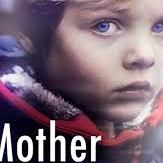


We visited the frozen landscapes of Canada for another dark and dour series of Cardinal, and back to the US for The Sinner (this was series 2, with only Bill Pullman in common with series 1). A much more unusual setting for Baghdad Central – an excellent, tautly plotted thriller with powerful performances by Waleed Zuaiter and Bertie Carvel. And we visited the past – Vienna in the 1900s -for Vienna Blood. The protagonists are an ‘unlikely duo’ of a brash young medical student and disciple of Freud, and a battered older cop, the production is very Sherlockian, and altogether it was slightly daft, but enjoyable, with a darker undercurrent running through it, of the endemic antisemitism of the time and the place, whose consequences we know too well.
Back in the UK, we enjoyed the Agatha Christie dramatization of The Pale Horse, with Rufus Sewell; Guilt, a blackly comic take on murder, with the always engaging Mark Bonnar; and McDonald & Dodds, with Jason Watkins, another lighter weight crime series, with good enough performances and writing to be worth catching when it returns. We watched Judge John Deed, which turned into a montage of 90s conspiracy theories about phone masts and the like, with improbable legal scenarios, and a protagonist whose compulsion to seduce every attractive woman he meets (key witness, fellow barrister, ex-wife, his therapist) becomes tiresome and frankly a bit creepy. Actually, all of the characters are intensely annoying, and one watched it mainly to be infuriated with it. Series 2 of Bancroft was just as ludicrous as the first.






The really good stuff:
Strike, Series 4 – charismatic leads, great plots, thoroughly enjoyable series, weaving the personal narratives of Strike and Robin in with the investigations very skilfully.
Hidden, Series 2 – Welsh noir – very, very noir – with an excellent female lead. As with the first series, the ending brings a very compromised and uncomfortable resolution.
Deadwater Fell – dark psychological drama, excellent cast, very unsettling.
Elizabeth is Missing – based on the book by Emma Healey. The lead character, Maud, has dementia, so when she insists that her friend Elizabeth is missing, no one takes her very seriously. Her recent memories keep getting mixed up with much older ones, of a much older disappearance. Glenda Jackson’s performance is absolutely mesmerisingly brilliant.
Dublin Murders – based on the first two books of the Tana French series. The plots are interwoven in a way that perhaps didn’t totally work, but the quality of the writing and the performances carried the day.
Endeavour – the penultimate series, apparently. The quality of the writing continues to be an absolute joy. The interplay between Morse, Strange, Thursday and Bright is so well played, often very emotionally powerful even though (or perhaps all the more because) none of them speak easily about their feelings.






Vera – Brenda Blethyn is a fine-looking woman, and so somewhat at odds with the descriptions in the novels, but she gets the character beautifully. The way in which the relationship with Joe’s replacement as DS is developed is convincing and touching (I particularly like the way he kneels to help her put on her crime scene shoe covers. As an older woman with dodgy knees I can so identify).
The Capture – about surveillance and deep fake images and whether or not we can trust what we see… A nicely paranoid atmosphere and a gradual blurring of the lines between right and wrong
Giri/Haji – my pick of the year, without a doubt. That it didn’t get commissioned for a second season speaks to a certain cowardice amongst the decision makers, but as the Independent’s reviewer says, it is pretty much faultless as it stands, so maybe it doesn’t need a sequel. This was stylish, often audacious, bloody, darkly humorous – really striking and memorable telly. Applause to all concerned.
Homeland returned for the last time. The final series was an encapsulation of everything that we’ve seen over its whole run, very consciously a drawing together of many of the threads from all the previous series, satisfying without being oversimplified. As a jazz fan I was delighted that Carrie’s love of jazz, rather forgotten about in recent series, was foregrounded in the final scenes, as the wonderful Kamasi Washington performed live on stage.
Deutschland 86 took us to the brink, everything in place for the collapse of the GDR and the destruction of the Wall. I hope we get one more series, to take these characters, and us, through those momentous events.
We would not normally have thought of watching The New Pope. The trailer, rather bafflingly, showed Jude Law in tiny (very tiny) Speedos walking along a beach, as women gazed, and fainted away, on either side. Hmmm. However, we knew that my brother had a moment on screen as one of the Cardinals gathered at a funeral, and we had to watch – and watch with full attention – to ensure we didn’t miss him. I’m glad we did – it was bonkers but beautiful. (So we got to see both of my brothers on screen this year, strangely enough, our Aidan in purple robes in The New Pope, and our Greg in an orange trackie at a football match over 40 years ago – see below.)
Philharmonia was bonkers too – the orchestral setting was unusual, and it was enjoyable, even if one didn’t ever believe a word of it.
The Accident was grim, and some of the plotting was a little bit careless, I thought – or maybe setting up for a second series where other things come to light? No idea. I just felt that – without giving too much away – a character was introduced who played a key role in events, but that role never seemed to be properly explored, and the images at the very end seemed, almost, to suggest that the truth was something other than the established official version. I may have imagined it! There were some powerful performances, from Sarah Lancashire and Joanna Scanlan in particular.
The Plot against America, adapted by David Simon (The Wire) from Philip Roth’s alt history, in which Charles Lindbergh, running on an America First ticket, wins the 1940 US election rather than FDR. It is, of course, incredibly topical (more so than the novel, which came out in 2004, when the events of 2016 could not have been imagined). It was powerful, incredibly tense, and subtle when it needed to be. Its final moments – and this is where it differed significantly from the book – with the central characters tensely awaiting the outcome of another election, hoping and fearing the outcome, kept coming back into my mind in November.
We’re saving up Small Axe. Looking forward so much to this.

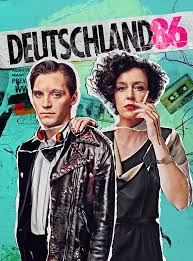




Let’s draw a veil over the awful Batwoman. Wooden acting, clunky scripts, a plot that made no sense at all.
Devs – sci fi that’s about ideas, as much as it’s about tech. There was no predicting where this one was heading, or where it ended up. Whether it entirely made sense, I’m not sure, but it was, as the Guardian reviewer put it, a ‘deep, dark, wild ride’.
Dracula – yet another take on the Stoker original, this one was about as faithful as any of the others, but it really went for it, with conviction and style. As Lucy Mangan in the Guardian put it, ‘It’s a proper job […] And that means proper scares. No spoilers, but the one in the [redacted] when the [redacted] suddenly [redacted] had me clinging to the ceiling. I advise parental supervision at all times. My dad was annoyed at having to come over, but needs must when the devil calls and starts emanating from your screen.’
His Dark Materials – As always with a screen version of a book/series that I have loved with a real passion, I was anxious that the adaptation would mess it up. I needn’t have worried. The performances are grand, the visuals stunning, and it’s powerful stuff. We loved it, and are looking forward to Series 2.
Star Trek: Discovery – we’re through the wormhole now, and it’s Trek, Jim, but not as we know it. This allows for real character development, though if I were to be picky I’d ask them to rein in the reaction shots of awe and wonderment and so forth. No idea where we’re headed but we’re now liberated from the need to be consistent with the existing series, which is pretty exciting, if you’re a long-term Trekker.
Star Trek: Picard – it’s a good time to be into Trek! Not only Discovery, but Picard too. My love for Jean-Luc is undimmed and he carried this very effectively. Some lovely shout-backs to NG, but its not pure nostalgia for the fans.
The Walking Dead – The first part of the season ended prematurely due to the pandemic – we only got the finale in October and now have to wait till next year for the second half. The series has come back strongly from quite a long slump, and whilst some of the regular gripes (apocalyptic battles which end up with only one peripheral character being killed, regular characters behaving with untypical stupidity to bring about some new peril, that sort of thing) are ever present, it’s back to being essential after a period where it was a mere duty watch.






Doctor Who – This year’s series was controversial amongst some Whovians, for seeming to change some of what we thought we knew about the Doctor’s origins. But did it? After all, our main source was the Master, who, as we know, lies… We will see. The Doctor did make a few appearances later in the year from her Judoon cell, to give us hopeful and inspiring messages about coping with lockdown isolation, which, I have to admit, brought a tear to my eye. She’ll be back on 1 January 2021, and let’s hope that the Tardis is a harbinger of hope for a better year ahead.
Some films watched on TV: Jurassic Park: Fallen Kingdom was perfect New Year’s Day fare. And the general stress of lockdown drew us to Abraham Lincoln: Vampire Hunter, and Pride and Prejudice and Zombies. The first I rather enjoyed – the script was just clever enough, with some neat historical references buried in amongst the improbable action. The second, well, once we had chuckled at the Bennett girls practising martial arts and strapping lethal weapons to their stockinged legs, it was slightly thin stuff. Last but not least in this category, the only superhero movie we watched this year, very unusually, was Deadpool, which was, to say the least, different… Very funny, very rude.
We’re saving up Agents of Shield (the last ever series) and Series 2 of His Dark Materials – some things to look forward to early in 2021.
We caught up with Modern Family, which we’d abandoned at the end of series 4, for no good reason. I found myself laughing loud and often. The characters don’t develop, not really, but when the writing and the performances are this good, there’s plenty of comic mileage to be had. We discovered Friday Night Dinner (only series 1 so far) which also made us laugh a lot.
The Good Place managed to be both very, very funny and profound. It made full use of its fantasy license, regularly wrongfooting us in ways that made us shout out something along the lines of WTF, and its final couple of episodes reduced me to real sobs, not just ‘something in my eye’ but full-on weeping. And yet, right up to the end, it was very, very funny too. A fabulous achievement.
We enjoyed the ebullient and charismatic Stuart Copeland in a couple of docs, his own Adventures in Music series, and his episode of Guitar, Drums, Bass (Lenny Kaye and Tina Weymouth represented the other instruments). We enjoyed the Lennon at 80 radio programme hosted by Sean Lennon, and a documentary about John and Yoko, Above Us Only Sky. The film Matanga/Maya/MIA was fascinating, though it left me somewhat dubious about her, not so much musically as politically. K T Tunstall presented an absolutely charming documentary about Ivor Cutler. A number of classical documentaries featured members of the remarkable Kanneh-Mason family: an Imagine programme, This House is Full of Music, Young, Gifted and Classical, focusing on cellist Sheku Kanneh-Mason, who cropped up too in the excellent Black Classical Music, fronted by Lenny Henry and Suzie Klein, which introduced us to a number of composers we had not heard of previously. This last programme tied in with Black History Month, as did Gospel According to Mica, in which the singer explored the history of the genre through six songs, taking us from slavery days through the civil rights struggle to our own time. Soul America charted some of the same history, though taking a much narrower slice of history, broadly from the transmutation of gospel into soul, through the socially conscious sounds of the late 60s, to the sexual healing of the ’70s. Music, Money & Madness was a fascinating look at the background to Rainbow Bridge, the incoherent mess of a film that features Hendrix’s excellent 1970 gig in Maui, Hawaii.


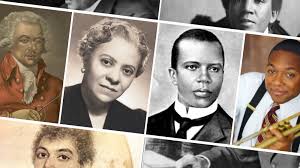

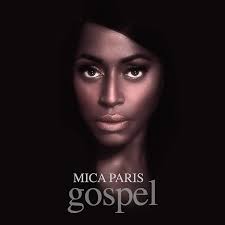

Afua Hirsch presented African Renaissance (on African art), and co-presented with Samuel L Jackson the outstanding and at times overwhelming Enslaved. David Olusoga’s Africa Turns a Page put the spotlight on African writers, some familiar, others less so (see my books blog for some contemporary African fiction).
I Am Not Your Negro is an extraordinary film. It’s a 2016 documentary directed by Raoul Peck, based on an unfinished manuscript by James Baldwin. It explores the history of racism in the US through Baldwin’s reminiscences of civil rights leaders Medgar Evers, Malcolm X and Martin Luther King. Baldwin was one of the African American writers who I discovered in my teens and who inspired and challenged me. The film left me feeling quite shaken, such is the power of the images and Baldwin’s words.
France 1939: One Last Summer – A poignant compilation of home movies from France, from the summer of 1939. Impossible to see even the most carefree moments without the foreshadowing of what was to happen.
Confronting Holocaust Denial with David Baddiel was thoughtful, intelligent and impassioned.




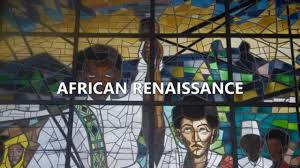

On a somewhat (much) lighter note, Rome Unpacked was a lovely corollary to our recent visit, reminding us of how much we had yet to see (looking forward to our next trip, in the after-times…). I also fell somewhat (quite a bit) in love with Giorgio Locatelli. One quibble however – they visited the Jewish Ghetto and talked about the history of medieval antisemitism, without mentioning that the Ghetto’s inhabitants were deported and murdered by the Nazis in 1943. It’s not that I wanted the programme to delve into that in any detail – it just needed a one sentence coda to that section of the programme, rather than leaving the impression that murderous anti-semitism was something from the distant past.
A documentary about Nottingham Forest’s 1970s European Cup successes turned out to be a much more emotional experience than I’d been anticipating, when I caught sight of my lovely kid brother, who died in February, on one of the clips. He’d been a ball-boy at the first-round match against Liverpool in our 1979 Euro cup campaign, and was caught on camera at the end, clapping the team off the pitch and then punching the air in celebration. I sobbed for quite some time after that.
The Big Screen
2020 cinema began shortly after New Year, with Little Women. I knew what was coming, of course, having known the books for most of my life, but it didn’t stop Beth’s death being devastating, as I knew how soon I would be losing my little brother. I have the DVD but will need to brace myself before rewatching, particularly the bits where… well, if you’ve seen it, or any of the previous versions or read the book, you won’t need me to spell out the parts of the film which will break me on the rewatch. In fact, I won’t even say any more now, just refer you to Rick Burin’s review. Hell, it broke him, and as he says, ‘I’m northern and into football and stuff, but I just kept crying’.
And then a two-film day in mid-March, watching Celine Sciamma’s Girlhood (second time round for me) with Liz at the Showroom, and then in the afternoon Sciamma’s newest film, Portrait of a Lady on Fire, with Martyn. I loved both films, I found Girlhood just as powerful as I had the first time, with several moments that are firmly lodged in my mind, and Portrait definitely requires a re-watch. I wrote about both films for this year’s International Women’s Day blog but I’m going to send you to read Rick Burin again, as he reviews all of Sciamma’s films and much better than I can.
Note that the films I did see in 2020 totally kicked the Bechdel test‘s ass.
And that was it. No more cinema – they did reopen, of course, for a while, but as we have been super-cautious throughout the pandemic, we did not take advantage (I renewed my Showroom membership, as a gesture of support).
Can’t talk about cinema in 2020 without noting the tragically early death of Chadwick Boseman. I only knew him as Black Panther but that role alone was enough to imprint him on my consciousness – it was a performance of grace and power, as well as huge cultural significance. Will look out for chances to see Boseman’s other movies.
Previous years’ cultural highlights have included Opera North at Leeds Grand Theatre. Obviously, since March, the pandemic has put paid to that. In fact, I’d had to drop out before that – I could not attend the three productions in January/February as my brother’s condition worsened and I knew both that I needed to be available to see him whenever I could, and that I really couldn’t commit to producing a review in a reasonable timescale, or at all. I had no idea when I made that decision that my stint as an opera reviewer would have come to an end for the foreseeable future. I loved doing the reviews, and had a marvellous time seeing superb productions of works from Monteverdi to Britten and all points in between.
The move to on-line cultural activities, devastating as it was to the future of live performance, offered some delights. The Sheffield Classical Music Festival in May gave us access to some joyous and uplifting chamber music, as members of Ensemble 360 filmed performances in their gardens and living rooms. It was fabulous, even if it made us miss Music in the Round in the Crucible Studio even more.
Other online treats were Ian Dunt talking about being a liberal, David Olusoga talking about Black and British in Black History Month, Kit de Waal talking about My Name is Leon (all three talks part of Sheffield’s annual Off the Shelf festival), Sarah Churchwell and Bonnie Greer talking about the US election outcome (part of the national Being Human festival) – and two chances to hear and see someone who was an idol during my teenage years, the awesome and inspiring Angela Davis, first in her own South Bank lecture, and then in conversation with Jackie Kay (as part of Manchester Literary Festival). I might, theoretically, have got to the Off the Shelf events in normal circs. But I wouldn’t have made it to the South Bank, or the University of London, or even across the Pennines to Manchester.
But I long to get back to live chamber music and theatre at the Crucible, live opera at Leeds Grand Theatre, arty French movies at the Showroom and blockbusters at the IMAX… We’ll get there, thanks to the vaccine(s). And it will be so very lovely when we do. I may, just possibly, weep.
Screens, in general, have been our lifeline in the plague times. Not just the entertainment and enlightenment of what our television channels offer, but the Zoom/Messenger/Facetime link ups with the people we love, who we can’t be with. It’s not the same, obviously, and in the early days at least it made me feel, briefly, sadder once we’d waved goodbye and blown kisses to the small figures on our laptop screens. But our isolation has been less stark, less absolute, and at best those virtual encounters have made us feel hope, made us feel loved, given us the chance to support each other.





Refugee Week 2020 – Music in Exile
Posted by cathannabel in Music, Refugees on June 21, 2020
What better way to draw this series of Refugee Week blogs to a close than with music? Refugees have always carried the music of their home with them, wherever they have travelled, and treasured it, wherever they have settled. The richest and most beautiful music we can hear, from whatever tradition, has been nourished by the music brought in by those travellers, the songs that have sustained them through hardship, the melodies that remind them of home.
None of us knows what the next year will bring. The virus has both ignored borders, and reinforced them. It poses a threat to us all, but most seriously to those already vulnerable due to age, health and living conditions. Refugees and asylum seekers are and will continue to be amongst the most vulnerable. And whatever happens during the course of the year, for good or ill, there will still be refugees. There will still be wars and persecution and famine and terrorism, forcing people to leave home. There will still be camps full of people in transit, waiting for the chance to leave for a more stable life somewhere else. And there will still be fragile crafts launched on to the oceans, full of people hoping for landfall somewhere that they will find safety.
Last year, Opera North put on a production of Bohuslav Martinů‘s powerful and pertinent opera, The Greek Passion. Martinu was a Czech composer, who was working in Paris when the Nazis invaded his homeland, and then had to flee France for Spain and then Portugal, before settling in the US. The opera, written in the 1950s, tells of a village whose inhabitants are putting on their annual Passion Play, when the arrival of a group of refugees challenges their community, their values and their courage.
It is an opera about migration, about society’s rejection of the destitute and the desperate when they arrive at our gates for help, about the dangers of failing to challenge populist rhetoric, about the manipulation of society by those in authority. It’s also about compassion, humility and, ultimately, tragedy.
As the manager of a small inner city community project based in Leeds called Meeting Point, I work with refugees and asylum seekers every day and I find it quite extraordinary that an opera written all those years ago can be directly relevant to the day to day work that I do now, as well as the lived experience of thousands of individuals across the UK today.
Emma Crossley, Meeting Point
https://www.operanorth.co.uk/news/a-face-to-the-stranger-refugees-and-the-greek-passion/
Part of Opera North’s Lullaby Project, People’s Lullabies are performed by participants in the company’s Community Partnerships scheme, which works with local organisations to provide access to live opera and music for people who might otherwise encounter barriers to those experiences. The Refugees and Asylum Seekers’ Conversation Club at Mill Hill Chapel, Leeds, provides tea, coffee, healthy food, nappies, sanitary protection and toiletries to vulnerable families who have had to leave the countries they love because of war and persecution.
Soundroutes is an initiative that networks musicians of very different international backgrounds in new homelands. The Soundroutes project created the Soundroutes Band, with members from scattered new domiciles in Berlin, Brussels, and Rome. Shalan Alhamwy on violin, Alaa Zaitounah on oud, and drummer Tarek Al Faham are all from Syria, Papis “Peace” Diouf of Senegal is on guitar. The group mixes tracks of Arab tradition and African rhythms, but leaps out to free jazz. In a related combo, Peace Diouf rearranges and composes powerful traditional Senegalese grooves as jazz with Roberto Durante on piano and Hammond organ, Giancarlo Bianchetti on guitar, and drummer Moulaye Niang,
https://www.allaboutjazz.com/refugee-music-in-europe-migration-asylum-soundroutes-and-arab-jams
muziekpublique.be/artists/refugees-for-refugees
Music from Za’atari refugee camp:
With his brow furrowed in concentration, Abu Abdullah rhythmically strums his oud, exploring the core of a melancholic melody. Mohamad Isa Almaziodi’s robust and melismatic voice soars above, full of emotional ornamentation – sighing and repeating, rising and falling – until he runs out of breath and the phrase is forced to finish. In his song, Mohamad is singing about how strange life is, how harsh the nights are: ‘Oh this life is so strange… our home became very far. Very far.’ But before he can finish, he is overcome by homesickness and with his head in his hands, he cries. He is crying for his beloved country and for the father he left behind.
https://www.songlines.co.uk/explore/features/songs-of-the-syrian-refugees
The band Musicians in Exile is based in Glasgow, and is made up of refugees and asylum seekers.
Afshin Karimi is sitting in a circle of musicians, his eyes tightly closed as he taps his foot in time with the beat. He waits patiently for his moment, then opens his mouth and sings. Music is part of the reason that the 44-year-old Iranian singer and keyboardist found himself here, in a makeshift rehearsal room overlooking a busy Glasgow street, thousands of miles from home. He fled his country three years ago, not only because he feared persecution after changing his religion, but because the kind of music he was making was banned by authorities.
https://inews.co.uk/news/scotland/musicians-in-exile-meet-britains-most-unorthodox-band-made-up-of-asylum-seekers-and-refugees-299705
Ten Albums, Take 2
Posted by cathannabel in Music on May 12, 2020
I’ve done this ten album challenge thing before – in fact, about two years ago, in those dim and distant days before the plague came. The Facebook challenges are proliferating now, whilst we’re in lock down. I knew last time that I could have easily chosen an entirely different ten, equally compelling, equally influential, equally part of me, so this time round I did so. Thus, no Kirsty, no Bowie, no Crimson… But as I said last time:
Ten albums, from the thousands that have found their way on to our record player/CD player/cassette deck over the years. They’re weighted towards the 1970s, which I guess is inevitable. My teenage years, when my musical tastes were forming, freeing themselves both from parental influence and from the tribalism of my peers, trying things out and finding out what moved my feet, my hips, my mind and my heart. That process has never stopped, but it was at its most intense then. I carry with me the earliest music I heard – a kind of mash-up of the Goldberg Variations with E T Mensah & The Tempos, probably – and there was a gradual immersion in the world of pop and rock when we returned home from West Africa in the late 60s. All of those sounds are still part of my listening world, and I’ve added music from all around the world, and ‘classical’ music that my parents weren’t into (late 20th century stuff, and opera), and jazz and, well, a bit of everything really. And there’s a world of music out there that I don’t know, and that I might love if I get the chance to listen. So ten albums is daft and arbitrary but if you made it 100 albums it still wouldn’t be adequate.
I followed the rules on Facebook, posting just the album cover, without explanation. But here, I make the rules. So this is my ten album list, take 2, with a bit of a blather about the why, when and wherefore.
Bach – Goldberg Variations (harpischord). This is one of the earliest albums I remember hearing, whilst I was growing up in West Africa. I used to dance around the living room to it, so long as no one was watching. Years later, when we bought our own copy, selecting the Glenn Gould version(s), I wondered why it didn’t sound more familiar and it took me an embarrassingly long while to realise that the version I’d heard so many times as a child was played on harpsichord, not piano. Which version it was I cannot now tell. In my memory, the cover was green and gold. I don’t claim any kind of synaesthesia but I still hear Bach as green and gold (and Mozart as blue and silver).
So I don’t know who was playing the harpsichord on that album, but this Leonhardt chap is a possible contender – there are recordings from the late ’50s by him, and I imagine we took the record out with us to Ghana in 1960. I love this piece on piano too, obviously, but the harpsichord Goldberg is the piece that inspired my lifelong love of Bach and my lifelong exploration of classical music.
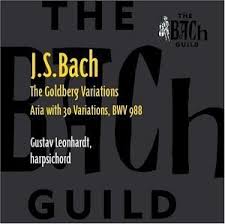
Ella Fitzgerald – The Cole Porter Songbook
Two birds with one stone here. Ella’s voice is sublime, and pairing her with Porter’s exquisitely crafted, delicious songs is perfection. And there’s the rub – I’ve had to defend Ella many times against the charge that, compared to Billie Holiday in particular, she’s just too perfect. Billie’s voice tells of betrayals and loss, a hard life, lived hard. And it’s wonderful, heartbreaking and vital. But the rich warmth of Ella’s voice is vital too. This is a 2 CD set, and is packed with fabulous songs. So in Love, Night and Day, Ev’rytime We Say Goodbye, I Get a Kick… And so many more. She lets the lyrics, those clever, subtle and often surprisingly rude, lyrics, work their own magic.
I’ve no idea when I first heard Ella, or Cole Porter, for that matter. I first heard some of Porter’s songs in the AIDS benefit project, Red Hot + Blue, which came out in 1990 – a very mixed bag, some of the artists very much of their time (The Thompson Twins, Jody Watley, Lisa Stansfield) but also Kirsty MacColl, Salif Keita, Neneh Cherry, k d lang… Other songs were already familiar, probably thanks to Sinatra. But if I had to pick one singer for Porter’s songs it would be Ella. She’s also done brilliant compilations of other great songwriters – Gershwin, Berlin, Kern. I don’t like all of her material, and whilst I admire her scat singing I don’t really enjoy it. Give her a tune though, and some genius lyrics, and she’s unbeatable.

Jimi Hendrix – Axis: Bold as Love
I have no idea why Jimi didn’t make it to Ten Albums, Take One. It’s almost as if he’s too obvious, has been too ubiquitous in my musical life, to be simply a name on a list. But there was a time before Jimi. I remember hearing on the news of his death in 1970 – I recall the crass, borderline racist dismissal of a ‘wild man of rock’ – and I know my brother had some of his albums, but it wasn’t until my musical life converged with my husband’s that I really started listening.
Axis: Bold as Love isn’t perfect. EXP is gimmicky and irritating, Wait till Tomorrow is enjoyable enough musically but the words are incredibly clunky and, yes, irritating. But when you’ve got Spanish Castle Magic, If Six was Nine, Castles Made of Sand, Bold as Love and Little Wing, you can forgive a couple of duff tracks.
There can’t be much Hendrix material I haven’t heard. Audience tapes of obscure gigs, demos and out takes and jams. Somewhere out there some collector is sitting on a recording I haven’t heard, another alternative version or another obscure gig, that might see the light one day. But meantime there’s a rich variety and abundance of material, given how short a time he had in the light. And I think it was with Axis: Bold as Love, that I properly fell for Jimi.
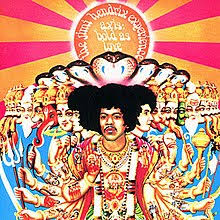
Jackson Five – Greatest Hits
Some might demur at the inclusion of Greatest Hits compilations in this account of the albums that influenced me. But (a) I make the rules, and (b) sometimes a well-chosen compilation is the way in to an artist’s work, a starting point. And when it comes to Motown, some of the actual albums contained a fair bit of ordinary, by the numbers material or ill-judged cover versions, whereas the Chartbusters collections and individual hits collections were all fab, no filler.
Motown was the soundtrack of my teens. I loved other stuff too, and Bowie was the most significant single artist, but those Motown songs, they still fill me with joy when I hear them now, just as they did back then. I loved the heartbreaky ones, obviously, the burning, yearning ones. But the Jackson Five produced some of the most purely joyous songs of their or any other time. ABC and I Want You Back are exhilarating, bewitching slices of pop/soul which sound as fresh now as they did back then. The interweaving of the voices – a Motown trademark of course, and with its roots in gospel – is uplifting and gives me goosebumps as only vocal harmonies can do.
I lent this album to a girl in our village, along with Michael Jackson’s debut solo album, Got to be There, and she moved away without giving them back. Not that I bear a grudge. OK, I did revile her name for many years but I’m over it now. Especially now we have another copy of the Greatest Hits.

Vaughan Williams – Fantasia on a Theme by Thomas Tallis/The Lark Ascending/Fantasia on Greensleeves
My mum loved VW. I can’t remember a time when I didn’t know these pieces in particular, and I learned to love the music for myself. The two Fantasias fed into my growing interest in early music, as well as leading me to other VW compositions.
Somehow (and this may be linked to my mum too) VW evokes for me as no other composer does the English landscapes that I love best, the coastlines of Cornwall and North Yorkshire, the mountains of the Lake District, the hills of Derbyshire.
After my mum died, the Tallis became in my mind so powerfully associated with her, and my grief at losing her, that to this day (and she died 25 years ago this year) I cannot hear it without weeping. And less than three months ago, we buried my kid brother, and it was The Lark Ascending that played as we followed his coffin out of the church and to the graveside. I doubt I will ever hear that piece again without weeping either. But I will keep on listening to these pieces, because however much they remind me of loss, they also lift my heart up, let it soar with the lark.

King Sunny Ade – Juju Music
My first Ten Albums selection included the wonderful Osibisa, who brought back to me the sounds of highlife music that I’d heard in Ghana as a child. I’ve been exploring African music ever since, from all over the continent, but with a particular love of West African music.
Nigerian King Sunny Ade started off in highlife (which is Ghanaian in origin but which spread to Ghana’s neighbours over the course of the 20th century, and particularly in the era of independence). The music evolved and ‘juju music‘ drew on a wide range of influences (including funk and reggae), whilst retaining its Yoruban flavour.
This 1982 album was his major label debut but Ade had been releasing records for almost two decades by then. It’s one of the first big successes of what is often called (somewhat problematically) ‘world music’, and led to so many other great African musicians (Youssou N’dour, Salif Keita, the Bhundhu Boys, Ali Farka Toure and Ade’s compatriot Fela Kute, the king of Afrobeat) getting airplay and record sales worldwide. And it is gloriously infectious and rhythmically compelling and joyous.
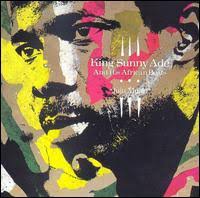
Bela Bartok – 2nd Violin Concerto
Mrs Bolland was the Deputy Head at Queen Elizabeth’s Girls’ Grammar School and taught general Music classes, not to O or A level students but as part of a wider education, throughout my schooldays there. At some point, I think in the lower 6th form, she played us some really quite challenging music from the twentieth century – Schoenberg’s Verklarte Nacht, something by Roberto Gerhard which I cannot recall… and this. From the moment I heard the opening pizzicato notes and the soaring violin, I was entranced.
This was written in the late ’30s, when Bartok was deeply troubled by what was happening in Europe (he left his native Hungary in 1940 and never made it back home again – he died in 1945). As with so much of the very best music, there is darkness and light here, sorrow and hope. Hearing this gave me confidence to explore other ‘difficult’ twentieth-century music, a quest that has continued ever since. I owe Mrs Bolland a debt of thanks.
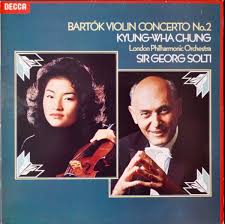
David Munrow – The Six Wives of Henry VIII
I loved the 1970 TV series, absolutely loved it. I went to some exhibition somewhere that had the costumes on display. I bought various tie-in publications to the series. I read everything I could about the Tudors (and have continued to do so over the years since).
And then there was the music. David Munrow and Christopher Hogwood founded the Early Music Consort in the late 1960s, and Munrow was in demand for soundtracking historical dramas with authentic music played on period instruments. He worked on The Six Wives, and its movie version, and on Elizabeth R. Listening to Vaughan Williams had prepared me for listening to Tudor music, and these pieces captivated me. At around the same time as I listened to this I acquired another album, presented as an Elizabethan Top Twenty. In fact, the ‘Elizabethan’ tag is a bit spurious as several pieces either pre- or post-date that era and although the performers were totally respectable there was the suggestion that the music was being just a little bit popped up to please audiences who wouldn’t normally go for this stuff . The Munrow set is more rigorously selected in terms of chronology, and because the performance of the music had to match the set, the costumes, all the period detail.
I recall being very shocked and upset to learn of Munrow’s suicide in 1976. But his legacy is remarkable – one can these days hear a fabulous range of early music on period or modern instruments in concert halls, on record and on the radio.

Miles Davis – Bitches Brew
We have Linda Buckley to thank for our introduction to Miles. To be honest, I didn’t really get Bitches Brew then, and if I had to recommend an entry point to Miles’ oeuvre, I don’t think it would be this (probs Kind of Blue, as predictable as that might seem). But I knew I was in the presence of musical greatness. We were into jazz rock at the time – Mahavishnu, Weather Report, Billy Cobham – and our way into jazz was through the jazz elements of that fusion. These days we listen to as much jazz as anything else. Miles played with anyone who was anyone, and his music changed dramatically over the years. So listening to all eras of Miles is a fantastic way to get into so many other artists, and to remain open to different strands of jazz, and to new bands and performers.
Radio 3 at the weekends gives us the chance to hear contemporary jazz on J to Z, which has introduced us to artists such as Dinosaur Junior, Tigran Hamasyan, Christian Scott Atunde Adjuah, Alina Bzhezhinska, Yazz Abmed, Kokoroko, Kamasi Washington… but also on Jazz Record Requests to hear the all-time greats. Now, I am not so fond of the trad stuff that a fair number of JRR aficionados seem to love. But there’s always something for us too – Coltrane, Ellington, Monk, Mingus, Haden, and, of course, Miles.
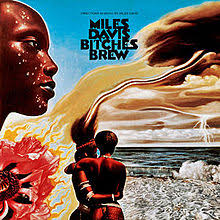
Simon and Garfunkel – Greatest Hits
I think this is the first album I bought. Or maybe the first one I bought from a record shop (my prized copy of Motown Chartbusters Vol. 3, on a remarkably solid slab of only slightly scratchy vinyl, was purchased at a knockdown price from a girl in my class). Bridge over Troubled Water was a huge chart hit, and my introduction to a world of wonderful songs.
The charts in 1970 were rich with hymn-like songs solemnly marking the passing of the 60s – not least the Beatles’ Let It Be – but Bridge Over Troubled Water was the blockbuster take: five minutes of booming, Phil Spector-inspired white gospel with a choirboy vocal and a simple, universal message beneath the sturm und drang. AP
https://www.theguardian.com/music/2020/apr/27/the-100-greatest-uk-no-1s
Just on this compilation, there’s For Emily, The Boxer, The Sound of Silence, I am a Rock, Scarborough Fair, America and of course BOTW.
Since then, I’ve listened to all the albums, and lots of much earlier S&G material, much of which is simply brilliant, and simply beautiful. And of course Paul Simon’s solo career (both alongside S&G and after the duo split), includes many, many gems: 1965’s A Church is Burning, Mother and Child Reunion, the Graceland album.
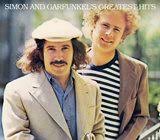
If I were to do this challenge again, next year, next month, tomorrow, I could find without great difficulty another ten albums that have influenced me significantly. Music has always been hugely important to me, and I’ve been listening for a very long time, to music from all eras, all genres, all continents. I have no truck with the ‘it’s all a bit shite nowadays’ school of thought – each era of music has had its share of tedious, derivative, witless and yet bizarrely successful material. Nor do I have any time for the wholesale dismissal of particular genres – I may not listen to a huge amount of country & western, for example, but I like quite a lot of it a lot (ditto rap). And in particular I’d hate to only listen to the music that is made here and in the USA, not when there are such extraordinary sounds emerging from so many other countries and cultures. The ten albums above have each led me in a particular musical direction, and for that – for these pieces of music and the artists who created them, for all the music I heard as a result and the joy it brought me – I am eternally grateful.
Postscript – Six Years of Singles
For a few years, it was the singles chart that dominated my musical life. Every Sunday we listened in, took notes, and voted, to come up with our own version of the chart. And every week we watched Top of the Pops (if the BBC changed which night that was on, I had to re-arrange my piano lessons to avoid a clash. No wonder my piano teacher/future mother in law did not try very hard to persuade me not to give up). That period, roughly between our return to the UK and my attempt to rapidly absorb and understand pop culture, and the point when music got a bit more ‘serious’ and album-focused was, say, 1968-1973. When I look back at the charts in those years there is an awful lot of absolute, utter, unadulterated tripe (some of which I remember with appalling clarity). But there are also some glorious slices of pop, and some formative moments.
1968 was the year I saw the Stones do Jumping Jack Flash on TOTP, the lighting making them look terribly sinister, and Arthur Brown doing Fire, wearing a hat that was actually on fire (no health & safety in them days). I think my mum was seriously shocked, and must have wondered whether her children should be exposed to this kind of thing. She didn’t ban it though, thankfully. I was shocked too, but in a good way. In total contrast, there was the sweet innocence of Mary Hopkin’s adaptation of an old Ukrainian folk tune, which both I and my mum could enjoy.
1969 introduced me to reggae via Desmond Dekker’s The Israelites. This was essential to my assimilation into school life. Music was very tribal and I never did get the hang of which group I might affiliate myself with most comfortably. I loved the music of both groups, was hopeless at conforming to dress codes or other social mores. But I did genuinely love ska, reggae, Motown and soul. Also this year, Jackson 5’s I Want you Back (see above), and Marvin Gaye’s version of Grapevine. And Tull’s Living in the Past, to nod to the other tribe.
1970 – Hendrix’s posthumous hit, Voodoo Child: Slight Return, probably the first Hendrix I heard (see above). And the first single I bought, Matthew’s Southern Comfort’s cover of Joni Mitchell’s Woodstock. That’s pretty cool as a first single, given how much I love Joni. Also one of the greatest singles ever, Freda Payne’s Band of Gold, which seemed to be always on the loudspeakers at the City Ground, and at Nottingham’s Goose Fair as we spun round on the waltzers.
Written by Motown brains trust Holland-Dozier-Holland, Band of Gold sees Payne sitting in a lonely bedroom, her wedding night gone disastrously unconsummated after some kind of freak-out by the groom. Although the exact details are tactfully veiled by Payne, it’s an unforgettably specific scenario, its horror hammered into your mind with that unyielding snare rhythm and told via a wondrous vocal line. BBT
https://www.theguardian.com/music/2020/apr/27/the-100-greatest-uk-no-1s
1971 and more reggae – Dave and Ansell Collins’ Double Barrel. My love of the A side, which sounded just as amazing when I reheard it a couple of years back, was only slightly dented by the B side being a bit of a rip-off.
If you wanted evidence of how far out, how unbound by the usual rules reggae was, you could find it at the top of the charts in early 1971: a piano line taken – sampled if you like – from Ramsey Lewis; a vocalist who largely grunted and bellowed incomprehensibly in the style of a Jamaican deejay: “I am the magnificent W-O-O-O!” It still sounds fantastic. AP
https://www.theguardian.com/music/2020/apr/27/the-100-greatest-uk-no-1s
Also, one of Diana Ross’s most gorgeous heartbreak songs, I’m Still Waiting. And while I never entirely loved T Rex, Jeepster was delicious.
In 1972, my French penfriend came to stay, and there was a bit of a cultural exchange as regards music. However, I think we won. Claude Francois and Michel Sardou couldn’t really compete with Alice (School’s Out) and Hawkwind (Silver Machine), T Rex (Children of the Revolution) and Deep Purple (Child in Time). There was also the uplifting loveliness of Johnny Nash’s I Can See Clearly Now.
1973 gave us Bowie’s Life on Mars – obviously not the start of my love affair with Bowie’s music, which really began when I heard Suffragette City on the juke box in the Cellar Bar, but a high, high point. Also this year, Lou Reed’s Perfect Day, a song that breaks my heart (when he sings, ‘You made me forget myself. I thought I was someone else, someone good’, oh lord). It’s a song about heroin, except that of course it isn’t, it’s a song about the fragility, the transience, the illusory nature of happiness. And then there’s the O’Jays’ Love Train, just to show that although my listening had shifted in a heavier direction, my love for soul had not (and never has since) faded.
After this period, we were less diligent in following the charts, and many of the albums we listened to in later years either didn’t yield singles, or those singles didn’t trouble the charts at all. And gradually we lost touch. The singles charts don’t mean today what they did back in the early ’70s, when one really could not face school on a Monday or the morning after TOTP unless one had listened/watched, and had an (acceptable) opinion on it all. But the art of the single – of packing a tune (with middle eight and memorable chorus), with lyrics that one could sing along to – into 2-3 minutes, with a B side that might even turn out to eclipse the actual hit – is, when it works, an extraordinary form of magic.
Albums of the decade
Posted by cathannabel in Music on December 30, 2019
Final list of the year/decade end. Honest.
Just ten albums, not ranked in order of importance or merit.
- Arctic Monkeys – AM
- Bjork – Utopia
- David Bowie – Black Star
- Alina Bzhezhinska Quartet – Inspiration
- Nick Cave – Skeleton Tree
- P J Harvey – Let England Shake
- Christian Scott – Ancestral Recall
- Songhoy Blues – Music in Exile
- Tinariwen – Emmaar
- Kamasi Washington – Heaven and Earth
2010-2019 – the best bits… and some of the other bits
Posted by cathannabel in Events, Film, Literature, Music, Personal, Television on December 19, 2019
I honestly hadn’t thought about it being the end of a decade until I saw the first few ‘best of’ lists appearing.
On a personal level, it’s been quite momentous. We both retired, midway through the decade, a decision which we haven’t regretted for a nano-second. I finished my (second) undergrad degree before I left work, and then went straight on to study for a PhD, which I hope to complete early in the next decade. Each of our children graduated twice (four different Universities, three different cities) and found permanent, rewarding employment.
I lost a good friend and colleague to cancer and helped to set up and then chair a charity as his legacy, raising around £30k since 2013 for cancer charities, through a fabulous fundraising event, the 24 Hour Inspire, and other ventures.
I started this blog in January 2012, and whilst I’ve had periods of writer’s block this year it’s given me a way of being creative, having spent most of my life denying that I am or could be. I was also offered the chance to go to the opera for free with a friend, and write reviews of the productions, which has been an absolute delight.
We put lots of things on hold for a while as my mother in law’s dementia worsened, and her care needs became urgent. She died last Christmas. My brother was diagnosed with terminal cancer in 2018 and the chemo he’s been on is no longer working. We go into the New Year with heavy hearts.
Politically it’s been a nightmarish decade. The Tories back in power, first in coalition, then in their own right, albeit for a while as a minority government. The EU Referendum and the government’s complete inability to approach the negotiations in good faith and with understanding and intelligence. Obama replaced in the White House by someone so utterly unfit for any kind of high office that I still wonder whether we slipped into some parallel universe at about the halfway point of the decade, after which nothing made any kind of sense.
Should have realised, when I woke one morning in early January 2016 to learn that Bowie had left us. Should have known it was a portent.
So since looking forward is a mug’s game at present, I’ll look back, to the books, films and TV programmes that have sustained me during the last ten years.
Books of the Decade
Some of these titles feature in my already published Books of the Year and Books of the Century lists, as one might expect. I’ll indicate those that do, or that are reviewed in my 60 Books challenge series, so as not to repeat myself too much (and have time to also do the full panoply of decade and year lists that I am somehow compelled to do).
Ben Aaronovitch – Moon over Soho (Books of the Century)
Ferdinand Addis – Rome: The Eternal City was a birthday gift from the Roman branch of our family, following a recent visit to the city, which had made me realise just how fragmented and unreliable my sense of its history was. A hotch-potch of Shakespeare, the New Testament, Robert Graves and Robert Harris, I really needed to get a grip on it all. Addis’s tome is just the thing. It’s very entertainingly written, it takes key events and explains how they came to pass and what followed, and it takes us from Romulus & Remus to Federico Fellini.
Chimamanda Adichie – Americanah. Her Half of a Yellow Sun is one of the top three books of the century (according to me). Adichie’s protagonist here goes off to University in the States, and we follow her struggles to acclimatise and to understand what race means in America, as well as her feelings for her lover back in Lagos. It’s often very funny, and always very sharp and perceptive. The Guardian said that ‘It is ostensibly a love story – the tale of childhood sweethearts at school in Nigeria whose lives take different paths when they seek their fortunes in America and England – but it is also a brilliant dissection of modern attitudes to race, spanning three continents and touching on issues of identity, loss and loneliness.’
Viv Albertine – Clothes, Clothes, Clothes. Music, Music, Music. Boys, Boys, Boys (Books of the Century)
Naomi Alderman – The Power (Books of the Century)
Lynne Alexander – The Sister illuminates a life lived in the shadows: Alice James was sister to the more famous Henry and William, prevented by ill health and the constraints of Victorian society from expressing her own creativity. Alexander doesn’t hammer this message home simplistically but brings Alice to sympathetic life. ‘A furious volcano of thoughts and desires trapped within a carapace of pain, Alice is a feminist cipher but, more movingly, a beautifully drawn and memorable individual, brave, vulnerable and fiercely intelligent.’ (The Guardian)
Darran Anderson – Imaginary Cities is an exuberant and wildly eclectic tour of cities in Western civilisation drawing on books, films, architecture, myth, visual arts. Totally my cup of tea. Described as ‘an exhaustive, engaging book’ which generates ‘sheer joy for the curious reader’. It certainly did for this curious reader.
Anne Applebaum – Iron Curtain: The Crushing of Eastern Europe 1944-56 is a fascinating study of Poland, the GDR and Hungary after the end of the Second World War. The Telegraph said that she takes ‘a dense and complex subject, replete with communist acronyms and impenetrable jargon, and make it not only informative but enjoyable – and even occasionally witty. In that respect alone, it is a true masterpiece’. (Books of the Year)
Kate Atkinson – Life after Life (Books of the Century)
Margaret Atwood – The Testaments is the long-awaited sequel to The Handmaid’s Tale. It does take the action forward – we get to see some of what happened after that book’s final page, but perhaps more significantly, we see Gilead from perspectives other than that of June/Offred, and so we understand more about how Gilead works, and about, in particular the role of the Aunts. It’s completely compelling, and very disturbing. (Books of the Year)
Julian Barnes – The Levels of Life (Books of the Century)
Linda Buckley-Archer – The Many Lives of John Stone. Buckley-Archer began her literary career with the YA Timequake trilogy. This is beautifully written, interweaving a vivid historical narrative with the present day. There’s no time travel, or supernatural/paranormal elements – it just uses a hypothetical genetic characteristic as the basis for the plot. It’s engaging, gripping and ultimately very moving.
James Lee Burke – Robicheaux (Books of the Century)
Jane Casey – Cruel Acts (Books of the Year, and Century)
Jonathan Coe – Middle England. I picked The Rotter’s Club for my books of the century, and this is the third part of that trilogy. This made me laugh a lot. Made me weep a bit. Reminded me of music I love (Hatfield & the North, Vaughan Williams) and of lyrics that always move me: Billy Bragg’s ‘Between the Wars’. (Not mentioned in Coe’s book, but I kept on thinking of the line ‘Sweet moderation, heart of our nation’). It’s rueful and wistful and, I think, hopeful… (Books of the Year)
Suzanne Collins – Mockingjay is the final part of The Hunger Games trilogy. Another series aimed at a young adult readership, this one is pretty dark (not that YA reading should be sugar-coated or cosy, it should challenge and disrupt if it’s doing its job). Vivid and exciting, with a splendid hero in Katniss Everdene, and resists too neat an ending – after so much tragedy and trauma, that would have jarred horribly.
Stevie Davies – Awakening (Books of the Century)
Edmund de Waal – Hare with the Amber Eyes (Books of the Century)
Emma Donoghue – Room (Books of the Century)
Helen Dunmore – Birdcage Walk. Sadly the last novel from Dunmore, who died of cancer in 2018. I picked The Siege as one of my Books of the Century, and read The Betrayal as part of my 60 books challenge – her novels are very varied but always beautifully and powerfully written. The Guardian describes her writing as ‘hazardously human’. It’s particularly poignant to note that the fictional Julia Fawkes ‘lies buried with the inscription “Her words remain our inheritance.” Julia may have disappeared from the record, but Dunmore’s words remain.
Sue Eckstein – Interpreters (Books of the Century)
Reni Eddo-Lodge – Why I’m no longer talking to White People about Race (Books of the Century)
Esi Edugyan – Half-Blood Blues (Books of the Century)
Elif Shafak – Three Daughters of Eve (60 Books)
Lara Feigel – The Bitter Taste of Victory (Books of the Century)
Will Ferguson – 419 (Books of the Century)
Gillian Flynn – Gone Girl (Books of the Century)
Karen Joy Fowler – We are all Completely Beside Ourselves is particularly difficult to write about without revealing a vital twist, so I will avoid any discussion of the plot. Read it anyway, just avoid the reviews (so no link to the Guardian, which called It an ‘achingly funny, deeply serious heart-breaker … a moral comedy to shout from the rooftops’.) (Books of the Year)
Tana French – Broken Harbour (Books of the Year and Century)
Esther Freud – Mr Mac and Me reminded me of Helen Dunmore’s Zennor in Darkness. A writer/artist (D H Lawrence for Dunmore, Charles Rennie Mackintosh for Freud) finds themselves in a rural community at the start of the First World War, and is regarded with suspicion by the locals due to their unconventional behaviour). Mackintosh is seen through the eyes of a fourteen year old boy, intoxicated by the glimpses of a wider world, of art and beauty, that Mackintosh brings.
Jo Furniss – All the Little Children (60 Books)
Robert Galbraith – The Cuckoo’s Calling (Books of the Century)
Patrick Gale – Notes from an Exhibition (Books of the Century)
Alan Garner – Boneland (Books of the Century)
Nicci Gerrard – What Dementia Teaches us about Love (Books of the Century)
Valentina Giambanco – The Gift of Darkness (Books of the Century)
Elizabeth Gilbert – The Signature of all Things. I wouldn’t have expected to enjoy Elizabeth Gilbert’s writing, having a deep-rooted suspicion of the whole Eat, Pray, Love thing. But I really did. Gilbert’s fictional protagonist, Alma Whittaker, is brilliant, lonely, not pretty. She’s a scientist, a naturalist, in the wrong era (she’s born in 1800) to have any chance of fulfilling her ambitions, or her desires. She’s remarkable, utterly believable, her openness and imagination endearing and fascinating. It’s an ambitious novel, that fully succeeds in its ambitions.
Robert Gildea – Fighters in the Shadows: A New History of the French Resistance. Gildea brings out of the shadows the Resistance that was marginalised for decades – women, Communists, foreigners. It’s much more complicated than the myth that de Gaulle propagated at the Liberation, and more interesting.
Lesley Glaister – The Squeeze (Books of the Century)
David Grann – Killers of the Flower Moon (Books of the Century)
Jarlath Gregory – The Organised Criminal (60 Books)
Elly Griffiths – The Stone Circle (Books of the Year and Century)
Thomas Harding – The House by the Lake (Books of the Year and Century)
Jane Harper – The Lost Man (Books of the Year and Century)
Robert Harris – An Officer and a Spy (Books of the Century)
John Harvey – Darkness, Darkness – the final part of the series of novels featuring Nottingham detective Charlie Resnick.
Noah Hawley – Before the Fall is an excellent thriller, about truth and lies, fame and reality, from the writer of the TV version of Fargo
Emma Healey – Elizabeth is Missing (Books of the Century)
Sarah Helm – If this is a Woman (Books of the Century)
Sarah Hilary – Never be Broken (Books of the Year and Century)
Susan Hill – The Comforts of Home is the most recent (that I’ve read) of the Simon Serrailler series. (Books of the Year. The Various Haunts of Men was one of my Books of the Century).
Christopher Hitchen – Mortality (Books of the Century)
Andrew Michael Hurley – The Loney (Books of the Century)
Jessica Frances Kane – The Report is absolutely fascinating. At the heart of the novel is a little known wartime tragedy, in which no bombs fell, but 173 civilians died. I had never heard about the Bethnal Green disaster when I came across this book, and it set off many trains of thought.
Philip Kerr – Prague Fatale. Kerr’s series of novels featuring Berlin detective Bernie Gunther blend crime fiction with World War II European history. They span from the immediate pre-war period to the long aftermath of the war, and Bernie has been part of it all. He’s a survivor, who’s done bad things and seen worse ones, but somehow retained his humanity, a dry humour, and at least some of his integrity.
Stephen King – The Institute. King’s latest references a number of his previous novels (Firestarter, The Shining, Carrie…) but does something a bit different with these themes. In a way, he’s setting two version of America against each other: the corporate world of the Institute, ‘the cogs and wheels of bureaucratic evil, run by ‘a bunch of middle-management automatons’, against small-town America (the good and the bad thereof). It’s proper cancel all other activities including meals and sleep till the last page King. (Books of the Year)
Otto Dov Kulka – Landscapes of the Metropolis of Death (Books of the Century)
John le Carre – Pigeon Tunnel (60 Books)
Harper Lee – Go Set a Watchman (Books of the Century)
Laura Lipmann – Sunburn (Books of the Year and Century)
Kenan Malik – Quest for a Moral Compass (Books of the Century)
Hilary Mantel – Bring up the Bodies. We’re still eagerly awaiting the third part of Mantel’s Cromwell trilogy. (Wolf Hall was one of my Books of the Century).
Helen Mathers – Patron Saint of Prostitutes is a fascinating biography of Josephine Butler, the remarkable Victorian campaigner who challenged all of the conventions about how a pious and respectable woman should behave by working with prostitutes, and challenging publicly the way in which they were brutalised and abused in the name of public morals.
Jon McGregor – Reservoir 13 (Books of the Century)
Dervla McTiernan – The Ruin (Books of the Century)
Livi Michael – Succession (Books of the Century)
Denise Mina – The Long Drop (Books of the Century)
Wendy Mitchell – Someone I Used to Know is an account by someone diagnosed with early onset dementia. She’s frank and fearless about explaining how the condition affects her as it progresses, but uses her energies to campaign for awareness and understanding, and for practical support. Her blog is funny, sad and enlightening, and it is so rare and refreshing to hear about dementia from someone who is actually experiencing it.
Caitlin Moran – How to be a Woman (Books of the Century)
Sarah Moss – Bodies of Light (Books of the Year and Century)
Thomas Mullen – Darktown (Books of the Century)
Tiffany Murray – Diamond Star Halo rocks. It’s set on a fictionalised version of the residential recording facility at Rockfield Farm, Murray’s childhood home, itself the locus of much rock music mythology. It’s gloriously funny, but has plenty of heart, and the music is part of every line of the text – I could hear the soundtrack in my head, even the music that was imagined and not real. And I often think of protagonist Halo’s night-time prayer, a litany of rock stars gone forever…
Maggie O’Farrell – The Hand that First Held Mine (Books of the Century)
Chinelo Okparanta – Under the Udala Trees movingly explores the Biafran war, sexuality and love across the ethnic and religious divides, class and status in Nigerian society.
David Olusoga – Black and British (Books of the Century)
Philip Pullman – La Belle Sauvage (The Book of Dust, Book 1). I won’t say too much about this as I don’t want to risk giving any spoilers. But it is sheer delight to be back in this world and to re-experience the sheer power, the subtlety, the glorious imagination of Pullman’s writing.
Ian Rankin – In a House of Lies, the most recent Rebus. He’s retired now, and battling with COPD and the lifestyle changes that has forced on him. Does any of that stop him getting involved in the solving of a crime, and getting under the feet of the cops? Have you met Rebus? (Books of the Year)
Danny Rhodes – Fan is about football and football culture, about supporting Nottingham Forest, and, inexorably, about Hillsborough. It’s powerful and harrowing.
Sally Rooney – Normal People (Books of the Year and Century)
Liz Rosenberg – Indigo Hill (Books of the Year and Century)
Donal Ryan – From a Low and Quiet Sea (Books of the Year and Century)
Philippe Sands – East-West Street (Books of the Century)
Noo Saro-wiwa – Looking for Transwonderland (Books of the Century)
Phil Scraton – Hillsborough: The Truth. When Scraton published this 2016 edition of his authoritative, rigorous, and personal account of the disaster, he would not have imagined the news that broke in December 2019, that Duckenfield had been found not guilty. Again, the families who have endured so much – lies, betrayal, vilification, dismissal – for so long, are in pain, and again, it seems no one will be held accountable for 96 entirely avoidable deaths.
Anne Sebba – Les Parisiennes (Books of the Century)
Taiye Selasi – Ghana Must Go (Books of the Century)
Lynn Shepherd – Tom All-Alone’s (Books of the Century)
Anita Shreve – The Stars are Fire was Shreve’s last book. Her protagonist, Grace, has a life that is limited by societal convention and tight family budgets but she thinks it’s fine, mostly, until she loses almost everything, in the terrible fires that swept Maine in 1947. The disaster is described with visceral power and horror, but Shreve is just as interested in its aftermath, as Grace tries to find a way to start again.
Rebecca Skloot – The Immortal Life of Henrietta Lacks (Books of the Century)
Patti Smith – M Train. I picked Just Kids for my Books of the Century, but could just as well have chosen this. With the humour, self-deprecation and warmth that characterised her earlier memoir, she talks about her marriage to Fred ‘Sonic’ Smith, of the series of terrible losses that she experienced, of her music. And, unexpectedly, of her obsession with Midsomer Murders.
Timothy Snyder – Bloodlands: Europe between Hitler and Stalin. I’ve spent a lot of time studying the Occupation of France, and I’m well versed in its horrors. I know better than to minimise the brutality – but the majority of the murders of French citizens and those who were in France during the Occupation took place not on French soil but in what Snyder calls the Bloodlands. ‘Both tyrants identified this luckless strip of Europe as the place where, above all, they must impose their will or see their gigantic visions falter… The figures are so huge and so awful that grief could grow numb. But Snyder, who is a noble writer as well as a great researcher, knows that. He asks us not to think in those round numbers. … The Nazi and Soviet regimes turned people into numbers. “It is for us as humanists to turn the numbers back into people.”
Rebecca Solnit – Hope in the Dark (Books of the Century)
Cath Staincliffe – The Girl in the Green Dress. I was torn when I did the list of books of the century, and chose The Silence between Breaths. So I’m making recompense now. What Staincliffe does so well is to focus not just on the crime (though there is a strong police procedural element to this one, unlike some of her stand-alone novels) but on the ripples created by the crime, on the families of victim and perpetrators, on the police officers themselves. This one will break your heart.
Susie Steiner – Missing, Presumed (Books of the Century)
Adrian Tempany – And the Sun Shines Now (Books of the Century)
Rose Tremain – The Gustav Sonata (Books of the Century)
Elizabeth Wein – Code Name Verity is a brilliant and moving YA novel about young women undercover in Occupied France in WWII. It’s so very cleverly structured – things that don’t seem to quite make sense suddenly become clear in the second half, when the narrator changes. The plot is utterly gripping and the ending made me weep. A lot.
Louise Welsh – A Lovely Way to Burn. This is part 1 of the Plague Times trilogy, a dystopian future where plague wipes out large swathes of the population. We’ve been here, or hereabouts, before of course – Day of the Triffids, The Walking Dead, 28 Days Later, The Stand… Welsh makes it work though, she gives weight to the moral issues as well as giving us suspense, action, horror, and everything we’d expect from the post-apocalypse.
Colson Whitehead – Underground Railroad (Books of the Century)
Jeanette Winterson – Why be Happy when you could be Normal? (Books of the Century)
Farewell to those writers listed above who we lost during the decade: Helen Dunmore, Sue Eckstein, Philip Kerr, Harper Lee and Anita Shreve. Thank you all.
Films of the Decade
I’ve highlighted in bold my favourite films in each of these categories. Many of them I’ve written about already elsewhere, so again I’m not attempting to review or even comment on each one.
Scifi and Superheroes: A brilliant decade both for the superhero genre and – IMHO – Marvel specifically, and for other sci-fi franchises: Star Trek had Beyond, and Star Wars fielded The Last Jedi and Rogue One. My pick from the MCU: Avengers Assemble, Captain America: Civil War, Black Panther, Captain Marvel, Spiderman: Into the Spiderverse, Guardians of the Galaxy I, Thor: Ragnarok. And outside this particular arc, from the X Men, the elegiac Logan. And though I don’t generally do DC, I have to have Wonder Woman.
Best of the bunch: Not dissing Endgame, but Assemble is when I fell in love with Marvel (and with Captain America, TBH). And Black Panther had a significance beyond its place in the Avengers story, and was exhilarating not just for people of colour in the audience, but for anyone who cares about seeing the rich diversity of humanity on screen, as heroes and as villains.
We had Inception and Interstellar, Her and Ex Machina, Looper and Mad Max: Fury Road, The Martian and Gravity, Monsters and Dawn of the Planet of the Apes, A Quiet Place and Source Code.
And the two best SF films of the decade: Annihilation, and Arrival. Visually stunning, intelligent sci-fi. Of the two, Arrival, with its emotionally devastating twist, and its fascinating exploration of language, edges it.
Thrills, Crimes & Heists: Baby Driver and Drive, Bad Times at the El Royale, Skyfall, Gone Girl and Widows. I’m torn on which to pick. With caveats, to do with the film’s failure to meet the low bar of the Bechdel test, I’d pick Baby Driver, which was beautifully described by Empire as: ‘not a film just set to music. But a film meticulously, ambitiously laid over the bones of carefully chosen tracks. It’s as close to a car-chase opera as you’ll ever see on screen.’ Even if the narrative arc (young man in debt to gangster does ‘one last job’ and finds out there’s no such thing) is traditional enough, the choreography, the seamless blend between diegetic and exegetic music, make it entirely original and massively enjoyable.
War: Anthropoid (the assassination of Heydrich), Childhood of a Leader (a more allegorical account of the birth of fascism), Lore (a German teenager in the aftermath of the war). And the best one: Dunkirk – I was overwhelmed, by that intense focus, by the score which built and built the tension until it was almost unbearable (and the use of the Elgar Nimrod as the first of the little ships appeared reduced me, predictably enough, to sobs), and by the non-linear structure which forced one to concentrate, to hold those strands together even as the direction teased them apart.
French films: Michael Haneke’s Amour, Xavier Giannoli’s Marguerite (a French take on the Florence Foster Jenkins story), Olivier Assayas’s Double Vies (Non-Fiction), Mia Hansen-Løve’s L’Avenir (Things to Come), Denis Villeneuve’s Incendies. Varda by Agnes and Bertrand Tavernier’s Journey through French Cinema. My favourites: Celine Sciamma’s Bande de Filles (so much in this movie, but just watch that opening sequence, with the young women leaving hockey match and returning to their homes in the banlieues, and a gorgeous sequence as they dance in shoplifted dresses to Rihanna’s ‘Diamonds’) , Abderrahmane Sissako’s Timbuktu (a stunning Malian film, beautiful and shattering, but with unexpected moments of humour too).
Horror: Cabin in the Woods, What we do in the Shadows. Get Out and Us. A Girl Walks Home Alone at Night, The Girl with all the Gifts. Under the Skin.
History/Biography: First Man and Hidden Figures, Lincoln, Selma and BlackKKlansman. Love and Mercy (biopic of Brian Wilson).
Comedy: Booksmart and Lady Bird. Death of Stalin and Four Lions. Hunt for the Wilderpeople and Moonrise Kingdom. Sorry to Bother You. World’s End and Submarine. The Muppets, and Paddington.
Animation: Inside Out, Tangled, Toy Story 3.
Adaptations: Macbeth (Fassbender and Cotillard) and Joss Whedon’s Much Ado about Nothing.
Documentaries: I Believe in Miracles (Johnny Owen’s account of the glory years at Nottingham Forest), Night will Fall and They Shall Not Grow Old, Nine Muses, They will have to Kill us First.
Drama: Captain Fantastic and Leave No Trace. Dallas Buyers Club and Pride. Grand Budapest Hotel and The Great Beauty. The Farewell and Short-term 12. Twentieth-century Women and Three Billboards outside Ebbing, Missouri. Winter’s Bone and Room. We Need to Talk about Kevin and If Beale Street Could Talk. Life, above all and Cold War.
Music: La la Land
Farewell and thank you to Marvel man Stan Lee, to Emmanuelle Riva (star of Haneke’s Amour, and long before that, of Hiroshima mon amour), to Agnes Varda, and to Michael Bond, creator of Paddington.
TV of the Decade
Subtitled Crime/Thrillers: Dicte, Follow the Money, Greyzone, Rough Justice, Spiral, The Team, Trapped, Wallander, Witnesses, Beck, Before we Die, Blue Eyes, The Bridge, Deutschland 83/86. Plus the bilingual English/Welsh productions, Hidden and Hinterland. Best of the bunch – Spiral (a master-class in French profanity, and a compelling if infuriating bunch of characters, dealing with grim and gritty crime on the streets of Paris.
Brit Crime/Thrillers: Endeavour, The Fall, Foyle’s War, Happy Valley, , Informer, Killing Eve, Kiri, Lewis, Line of Duty, Little Drummer Girl, London Spy, The Lost Honour of Christopher Jenkins, Midsomer Murders, The Missing, No Offence, River, Scott and Bailey, Sherlock, Shetland, Southcliffe, Strike, Suspects, The Suspicions of Mr Whicher, Unforgotten, Vera, Wallander, Bodyguard, Broadchurch, DCI Banks, Black Earth Rising, Ashes to Ashes. Best of the bunch – Endeavour for beautiful, subtle writing for all the lead characters; Killing Eve for deranged, delicious wickedness, Line of Duty for twisty turny plotting, and stunning, forget-to-breathe set pieces in the interview room, Unforgotten for the warmth and humanity of the two leads, the clever subtlety of the writing, and the emotional complexity of cold case investigation.
Other Crime/Thrillers: Fargo, Homeland, Mystery Road, Southland, The Americans. Best of the bunch – Fargo. Bonkers, funny and very very dark.
Sci-fi/Fantasy: Agent Carter, Agents of Shield, The Walking Dead, Doctor Who, The Fades, Utopia, The Handmaid’s Tale, Humans, Misfits, Orphan Black, The Returned, Star Trek: Discovery, True Blood, Being Human. Best of the bunch – Agents of Shield for daring plotting and terrific writing. Doctor Who for bringing us not only Doctors 11, 12 and 13, but the War Doctor and the reappearance of the very first Doctor, River Song and a whole raft of new companions, new and old foes… And Who, as always, through this decade, has given us a hero who thinks, who cares, who values kindness above all things, who isn’t human but somehow reflects back to us the best of humanity. Orphan Black for Tatiana Maslany’s virtuoso performance as most of the key characters. The Returned for a spooky, troubling, atmospheric take on the notion of the revenant.
Comedy: Big Bang Theory, Community, Derry Girls, Doc Martin, Fleabag, The Good Place, How I Met Your Mother, Modern Family, Raised by Wolves, The Thick of It, W1A, Young Sheldon. Best of the bunch – Derry Girls
History/Biography: A Very English Scandal, Brexit: An Uncivil War, Cilla, Gentleman Jack, Mo, Poldark, Resistance, To Walk Invisible, Wolf Hall, Summer of Rockets, World on Fire, War and Peace. A Very English Scandal was a startlingly funny and somehow touching take on a scandal that I recall from my early teenage years (the newspaper coverage at the time was highly educational!). I wrote about Gentleman Jack in my review of the year. And Resistance was a powerful – and historically sound, whilst using the device of a fictional central character who could link to all of the key resistance groups and events – account of Occupied Paris, a subject that I find endlessly fascinating.
Drama: The Casual Vacancy, Desperate Housewives, Doctor Foster, Spin, This is England, Treme, Years and Years. This is England (the TV series) was so powerful that I haven’t rewatched it. It broke me – particularly TiE88. Treme was a joy – it drew its characters with so much love and understanding, that we ended up loving them too. The cast was brilliant, as was the music (it’s the only drama of the decade that has led us to seek out a whole raft of CDs). And Years and Years was timely, moving and let us hope not overly prescient…
Music
This was the decade that I really got into opera. Having the chance to see (and latterly to review) Opera North productions at Leeds Grand Theatre and Town Hall has been not only a delight but an education. I’ve seen productions from across the centuries, and not only has the singing been glorious, but the stagings have been wonderfully inventive. You can find my reviews of the titles in bold elsewhere on this site.
- Cole Porter’s Kiss me Kate
- Purcell’s Dido & Aeneas
- Poulenc’s La Voix humaine
- Puccini’s La Boheme, Gianni Schicchi, Il Tabarro, Suor Angelica, Tosca, Madama Butterfly and Turandot
- Britten’s Death in Venice and Peter Grimes
- Ravel’s L’Enfant et ses sortileges
- Verdi’s Aida and Un ballo in Maschero
- Falla’s La Vida Breva
- Gilbert & Sullivan’s Trial by Jury
- Bernstein’s Trouble in Tahiti
- Giordano’s Andrea Chenier
- Kevin Puts’s Silent Night
- Handel’s Giulio Cesare
- Martinu’s The Greek Passion
- Strauss’s Salome
- Wagner’s The Flying Dutchman
- Lehar’s The Merry Widow
- Janacek’s Jenufa, Osud and Katya Kabanaova
- Monteverdi’s The Coronation of Poppeia
- Mozart’s Don Giovanni and The Magic Flute
- Rimsky Korsakov’s The Snow Maiden
- Leoncavallo’s I Pagliacci
- Mascagni’s Cavalleria Rusticana
As always, we have listened to a LOT of music. And over the course of the decade, more and more of it has been jazz. That’s partly thanks to Radio 3, with Jazz Record Requests and J to Z bringing us artists we weren’t familiar with along with lots of stuff from long-term favourites (Monk, Miles, Mingus et al). We’ve seen some live jazz too, from the Kofi-Barnes Aggregation, Arnie Somogyi’s Scenes from the City, and the Stan Tracey Octet.
For several years of this decade, Tramlines was where we went, one weekend a year, for live music. Music in pubs and clubs, in parks, in the art gallery, the Cathedral… It’s changed now, and it’s more a conventional music festival, which doesn’t suit us as well (though it’s a great success and a huge achievement for the city) – what we loved was just wandering around the city centre, from one venue to another, catching bands we’d never heard of as well as a few big names. It was bloody brilliant. And it was where we first saw Songhoy Blues, one of my bands of the decade. These young Malian musicians made me dance, made me smile like an idiot, made me cry a little, when Aliou Toure spoke about his country, his continent, and what the music stood for – peace, love, unity.
We’re privileged in Sheffield too to have Music in the Round – chamber music in the Crucible Studio from the house band, Ensemble 360, and a host of guest musicians. As the name suggests, the audience sits around the performers, so you’re guaranteed a good view, and it gives an intimate feel to the event. I could not begin to list the concerts we’ve attended there. Not just classical either – some of the jazz concerts referred to above were in the Crucible Studio, as was a wonderful gig from the Unthanks.
There have been other venues too – a remarkable performance of Terry Riley’s In C, in the Arts Tower paternoster lifts, and a programme of Reich, Adams, Zorn and others at the Leadmill, from the Ligeti Quartet.
So, another decade bites the dust. These have been some of the best bits. Love and thanks to all of the people who’ve shared these cultural delights with me, to all of the people who’ve created and performed these cultural delights for me, and to all of those who’ve passed on their own enthusiasms to me over the years.
Onwards. Whatever the next decade brings, let’s ensure it’s full of wonderful books, films, TV and music. Let’s hang on to the hope that things can and will get better…
Disintegration Loops
Posted by cathannabel in mental health, Music, Personal on September 5, 2019
This post has been many months in the gestation. In my head, it started off as a more abstract and metaphysical musing about the nature of dementia, at least as I have encountered it, about how what made a person that person fades, gradually, until it has virtually disappeared, and yet they are still here. As a recent contributor to a discussion in the Guardian described it, ‘death on the installment plan, as every day another little piece would flicker out of existence’. But there are other things that must be said as well – the anger at how our health service and social care – and in particular the failure to join the two up effectively – can fail those rendered helpless by the disintegration of their mind and memory.
The title is borrowed from a series of pieces of 21st century music, by American composer William Basinski, which I have loved ever since a friend introduced me to them a few years after they were released in 2002/03. Basinski had magnetic tapes, recorded in the 1980s, which he wanted to transfer to digital format. But the tapes had deteriorated, so there were gaps, and cracks, which increased as he continued to play the tapes. The original recordings can be heard, but faint, distorted, broken up, fragmented. And somehow this is intensely moving. When I first heard it, I felt the general sadness of loss, of gradual loss in particular, not a sudden shock and wrench but the knowledge that something is slipping away that was and still is precious. And when I saw this happening to someone I loved, that title and the memory of listening to these albums came back to me.
And the idea of loops, of course, resonated with us. The endless loops of conversation: Where am I? You’re in hospital, Mum, you had a stroke. Oh. When can I go home? When you’re stronger. Where am I? round and round again… As the disease progressed the loops got shorter, until all that was left were the questions and our answers disappeared into the fog.
Basinski was not thinking of dementia when he created these pieces. They’re dedicated to the victims of the September 11 attacks in New York, which Basinski saw from the roof of his apartment in Brooklyn, the morning that he had completed the project. But as D H Lawrence said, trust the tale and not the teller. That Basinski associated the work with 9/11 does not prevent it from being also a powerful and poignant and heartbreaking account of a very different kind of loss.
There are as many different experiences of dementia as there are sufferers – and carers. I can only speak of our own, but there are elements in what we experienced that will be shared by many. Over the months since she died we have been gradually able to overlay the images of her the last time we saw her conscious – bewildered, afraid, unable to understand what we were saying to her, unable to smile, unable to recognise the photograph of her beloved little cat that we had brought as a gift – with the woman we had known before. That woman was funny, fiercely independent, interesting and interested, a traveller, a gardener, a musician, a teacher, a fan of detective novels and TV series, a lover of good food and wine. Dementia took all of that, little by little by little, but as we organised her funeral and started to get cards and letters from people who’d known her before, we saw her re-emerge from the shadows, heard the laughter that so many people had mentioned, literally heard her voice on a recording amongst the other members of the choir she sang in for many years.
But as we recovered some of those joyful memories, I thought about some of what had happened in the last year of her life, and I got angry. On her behalf, but also on behalf of the many, many people who suffer from dementia. Many are less fortunate than she was – she had the funds to choose (or for us to choose on her behalf) the kind of care she needed, and to not have to put up with sub-standard care (in fact, the carers who supported her in her own home until her stroke were wonderful, as was the care home that she moved to for the last six months of her life). She had family who were close enough at hand to be involved in her care, who were free to come over at short notice when needed, to spend time on hospital wards to talk to medics on her behalf. But despite all of this, and despite the loving and patient care on the wards from nurses and health care assistants, there was something terribly wrong.
If I could go back, knowing what I know now, I would interject in every discussion about her medical care and about options for discharge, to remind people that, whilst she had been admitted to hospital following a stroke, she had dementia, and that any decision about her care in hospital and about what happened once treatment was over HAD to take account of that. She could not cooperate in her own care. She removed the feeding tube that the hospital had inserted to ensure she did not aspirate and contract pneumonia, because she did not understand why it was there, she only knew it was unpleasant and uncomfortable. She tried (and occasionally succeeded) in removing the surgical collar that was needed after she fell and broke a couple of vertebrae in her neck – again, she did not know why she was wearing it, blamed the collar for the pain of the fracture. Her carers – at her home and in the care home – took her dementia into account. Staff on the wards largely did (they brought her food even if she’d said she didn’t want any and didn’t rush to take it away when she said she’d finished, understanding that seconds later she’d forget that she’d finished and have another go… ).
But when it came to preparing her for discharge, it was as if the need to free up a bed, once no further medical treatment was required, overrode other considerations. We get it, we really do, we know the NHS is overstretched, we know that hospitals can’t have beds taken up long-term by people for whom they can do nothing more. Nevertheless…
We were told how much her mobility was improving, and that with extra help for a while (equipment and additional carers) she would be fine at home. And so she was discharged. We were given a date for discharge, and a time, so planned to get there (we’re an hour’s drive away) well ahead, to sort the house out and get her shopping done. But she was delivered home much earlier and so we arrived to find her sitting, bewildered, on the sofa (where we knew and her carers knew not to let her sit, because it was so difficult to get her up from it). She had no idea how long she’d been there. We quickly realised that we, and she, were in a nightmare. We were as terrified as she was.
She would be alone for most of every day (carers came four times a day). She had forgotten, after a month in hospital, how to use her TV remote and could no longer read. She would be incontinent and thus sitting in her own waste for hours. She would be unable to change her position in the chair or the bed and thus would be at risk of pressure sores. She would be at risk of falling from her chair if she forgot that she could not get up, and tried to do so. She had forgotten how to use her ‘red button’ alarm and so if she fell would lie there until the next carer visit. She would be shouting out for help, hour after hour – she had no sense of the passing of time, and so would be convinced five minutes after a carer had left that she had been alone for hours already.
She had been promised physiotherapy, and the assumption seemed to be that she could learn, and get better at the limited means of mobility possible for her. But since the dementia took hold, she had been unlearning. Unlearning skills she had had for years, like how to dress herself, how to make a cup of tea. Her discharge took no account of this.
When the carers arrived they shared our alarm and dismay and decided that it was an unsafe discharge and that she should go back into hospital. Next day when we rang to see how she was, the nurse on the EAU said brightly how well she’d done on the rotunda and that she’d be ready for discharge soon. We headed straight over and prepared for a fight.
We pointed out that if one of us had had a stroke and lost mobility, and was discharged to live alone, we would of course be worried and miserable. But we could do something about the situation – ensure that books, radio, TV remote were within reach, keep in touch with the world via phone or laptop and talk to family and friends. We could look at the clock and know how long it would be before someone would visit. She had none of those resources.
We argued, we insisted that we could not accept her being sent home. And eventually someone said to us, what do you suggest then? And we said, well, we rather thought you might be able to offer us some advice and guidance on possible solutions. And just like that, we were put in touch with the social worker and the Age Concern contact, and were given details of suitable care homes, and within a few days, were arranging her discharge to a dementia specialist care home.
We’d never promised her that we wouldn’t ‘put her in a home’. But even if we had made that promise, we’d have broken it. What mattered was that she was safe, that someone was there 24 hours a day to take care of her, that they were able to keep her comfortable. And the language of ‘putting’ someone in a home is inherently prejudiced – we found the best care home we could for her, and we worked with the care home manager and staff to meet her needs as well as we could, just as we had worked with the carers who came to her home. We have no regrets about that – only about our naivety in our dealings with the hospital and our failure to remind them at every stage and in every discussion about her dementia.
The other thing that rapidly became apparent to us was that with every hospital admission, the dementia gained ground. This is borne out by statistics from John’s Campaign:
- One third of people with dementia who go into hospital for an unrelated condition NEVER return to their own homes
- 47% of people with dementia who go into hospital are physically less well when they leave than when they went in
- 54% of people with dementia who go into hospital are mentally less well when they leave than when they went in
John’s Campaign‘s raison d’etre is pretty simple – the belief that in all hospital settings, for patients with dementia, ‘carers should not just be allowed but should be welcomed, and that a collaboration between the patients and all connected with them is crucial to their health and their well-being’.
In that grey area, where someone may be deemed to ‘have capacity’ to make decisions, but at the same time is unable to hold on to even simple information, let alone weigh up pros and cons, the family (if the patient is fortunate enough to have family/carers who are able and want to be involved) must be seen, surely, as a tremendous benefit for the hospital.
John’s Campaign applies to all hospital settings: acute, community, mental health and its principles could extend to all other caring institutions where people are living away from those closest to them. In the time since the campaign was founded, over 1000 institutions have pledged support and a lot of progress has been made – but there is a lot yet to be done.
https://johnscampaign.org.uk/#/about
If a patient with dementia has no family to speak for them, to ensure that their dementia is taken into account in all decisions about their medical and social care, how can we provide them with advocates? As Nicci Gerrard said in a recent article, dementia is our collective responsibility. You might not have encountered it yet. But odds are, you will. It’s in all of our interests that we recognise the scale of it, recognise what’s needed to keep people with dementia as safe and as comfortable as possible, that those of us without dementia speak up for those who have it, who can no longer recognise or articulate what they need. They may no longer be able to articulate their needs, or explain the reasons for their anxiety or distress, but the anxiety and distress is no less real for that – and all the more heartbreaking to witness.
A good place to start is in collectively facing up to the fact that it is in our midst and that each year hundreds of thousands of men and women are living with it and dying with it. If not you, someone very near you. If not now, soon.
Support, Information, Advice
If dementia is now a part of your life, there are places you can go for support and advice. I’ve already mentioned John’s Campaign. I found the Alzheimer’s Association forum, Dementia Talking Point, very helpful on all sorts of practical issues, and often very reassuring.
Some books that I found both fascinating and useful. Several of them at some point made me laugh, and all of them without exception, at some point made me sob.
- Nicci Gerrard (founder of John’s Campaign) – What Dementia Teaches us about Love
- Andrea Gillies – Keeper: A Book about memory, identity, isolation, Wordsworth and cake… (Andrea Gillies took on the care of her mother-in-law, who was in the middle stages of Alzheimer’s disease. This is a journal interwoven with an investigation of how Alzheimer’s works)
- Emma Healey – Elizabeth is Missing (a wonderful novel, whose protagonist is a woman with dementia, who can’t always recognise her daughter, but knows that her friend Elizabeth is missing…)
- Robyn Hollingworth – My Mad Dad: The Diary of an Unravelling Mind
- Wendy Mitchell – Someone I used to Know (Wendy was diagnosed with early onset dementia some years ago, and writes a truly remarkable blog about her life with the disease. Her experience is very different to that of my mother in law. But it’s a rare and invaluable gift to hear someone explaining so clearly what it’s like have dementia, and a joy to hear of the rich life she can lead even now.)

Notre Dame in flames
Posted by cathannabel in Events, History, Music on April 16, 2019
It’s too early to know what’s been lost, what’s been saved. It’s too early to know what started the blaze. All we know is that a beautiful place has been ravaged by fire, and that not only those whose city it graces but all of us who care about history and beauty feel a sense of shock and loss.
The great cathedrals were intended to inspire a sense of worship, a turning of the heart and the mind to God. For me, what they inspire is certainly awe, but awe of the human beings who imagined and then built something so extraordinary. Without any of the knowledge we now have of materials science, of engineering and physics, they built something that has survived (and survives still) for centures, that has outlived wars and revolutions, and has remained (and will remain still) a place of contemplation and stillness.
A place of Christian worship has occupied this site since probably the 4th century. Notre Dame itself dates from the 12th century – obviously since then there have been alterations, additions, refurbishments, renovations and repairs. The flying buttresses were added in the 13th century, and then strengthened again in the 14th. The Cathedral suffered damage at various times – Huguenot riots, the Revolution, the street fighting during the Liberation. The spire which collapsed in the blaze yesterday was from the 19th century.
That most glorious church of the most glorious Virgin Mary, mother of God, deservedly shines out, like the sun among stars. And although some speakers, by their own free judgment, because [they are] able to see only a few things easily, may say that some other is more beautiful, I believe however, respectfully, that, if they attend more diligently to the whole and the parts, they will quickly retract this opinion. Where indeed, I ask, would they find two towers of such magnificence and perfection, so high, so large, so strong, clothed round about with such a multiple variety of ornaments? Where, I ask, would they find such a multipartite arrangement of so many lateral vaults, above and below? Where, I ask, would they find such light-filled amenities as the many surrounding chapels? Furthermore, let them tell me in what church I may see such a large cross, of which one arm separates the choir from the nave. Finally, I would willingly learn where [there are] two such circles, situated opposite each other in a straight line, which on account of their appearance are given the name of the fourth vowel [O] ; among which smaller orbs and circlets, with wondrous artifice, so that some arranged circularly, others angularly, surround windows ruddy with precious colors and beautiful with the most subtle figures of the pictures. In fact I believe that this church offers the carefully discerning such cause for admiration that its inspection can scarcely sate the soul.”— Jean de Jandun, Tractatus de laudibus Parisius[
For me, Notre Dame has other connotations. In this place, inspired by this place, composers such as Léonin and Perotin wove extraordinary, other-worldly sounds with human voices, using the acoustics of the cathedral to worship God in song. The idea of polyphony was regarded with suspicion by some – the fear was that the listeners would be swept away by the beauty of the sounds and forget to take heed of the words:
Bad taste has, however, degraded even religious worship, bringing into the presence of God, into the recesses of the sanctuary a kind of luxurious and lascivious singing, full of ostentation, which with female modulation astonishes and enervates the souls of the hearers. When you hear the soft harmonies of the various singers, some taking high and others low parts, some singing in advance, some following in the rear, others with pauses and interludes, you would think yourself listening to a concert of sirens rather than men, and wonder at the powers of voices … whatever is most tuneful among birds, could not equal. Such is the facility of running up and down the scale; so wonderful the shortening or multiplying of notes, the repetition of the phrases, or their emphatic utterance: the treble and shrill notes are so mingled with tenor and bass, that the ears lost their power of judging. When this goes to excess it is more fitted to excite lust than devotion; but if it is kept in the limits of moderation, it drives away care from the soul and the solicitudes of life, confers joy and peace and exultation in God, and transports the soul to the society of angels.
John of Salisbury (1938) [1159]. Pike, Joseph B, ed. Policraticus, sive de nugis curialium et de vestigiis philosophorum [Frivolities of courtiers and footprints of philosophers: being a translation of the first, second, and third books and selections from the seventh and eighth books of the Policraticus of John of Salisbury]
It is deeply touching that the response of Parisians to the sight of this place, so deeply a part of their (and our) culture and history, engulfed in flames, was to sing.
• «Tous les yeux s’étaient levés vers le haut de l’église. Ce qu’ils voyaient était extraordinaire. Sur le sommet de la galerie la plus élevée, plus haut que la rosace centrale, il y avait une grande flamme qui montait entre les deux clochers avec des tourbillons d’étincelles…»
Victor Hugo, Notre-Dame de Paris (1831).
One is not, sadly, surprised to note not only an outbreak of ‘whataboutery’ (as if those of us who care about the damage to this beautiful place must therefore not care about, for example, the burning of black churches in Louisiana) but a rush to blame, to line up the usual suspects. I won’t dignify the latter with any further words.
Notre Dame will be rebuilt. Notre Dame will survive. Notre Dame reminds us how extraordinary human beings are. That we can imagine and create something like this, envisage something bigger and finer and more beautiful than we have ever seen and then make it reality. That we can hear the way sound echoes in the vaulted roof and creates harmonics, and compose music – and systems of notation which enable us to see and study and play that music today – to glorify God with many voices weaving together. Many voices, making harmony. That we could do those things must surely give us hope for humanity.

The west rose window (about 1225)
2018 – the best bits
Posted by cathannabel in Literature, Music, Television on December 31, 2018
Family circumstances make it unlikely I will have time to do my usual detailed breakdown of my favourite TV programmes, books, music and so forth for the year just about to end. I managed the film review, but for now, I will make do with mere lists, and hope to have time at some later point to talk a bit more about why.
TOP TV – not ranked in any way!
- Derry Girls
- Black Earth Rising
- They Shall Not Grow Old
- No Offence
- Strike
- The A Word
- Killing Eve
- A Very English Scandal
- Bodyguard
- Star Trek: Discovery
- Agents of Shield
- Humans
- Hidden
- The Bridge
- The Walking Dead
- Unforgotten
- Doctor Who
- The Cry
- Treme
- Secrets of Cinema
- Black Hollywood
2018 in Music

- Songhoy Blues – Resistance
- Bjork – Utopia
- Alina Bzhezhinska Quartet – Illuminations
- Kamasi Washington – Heaven & Earth
- J to Z (BBC Radio 3)
- Tosca (Opera North)
- Don Giovanni (Opera North)
- Madama Butterfly (Opera North)
- Salome (Opera North)
- Catrin Finch & Seckou Keita (Music in the Round)
- Kiss Me Kate (Opera North)
- Silent Night (Opera North)
- Terry Riley – In C
- Steve Reich – Electric Counterpoint/New York Counterpoint (Music in the Round)
- Steve Reich – Different Trains/John Adams – Fellow Traveler/John Zorn – Cat o’Nine Tails/Tanya Tagaq – Sivunittinni /George Crumb – Black Angels (Ligeti Quartet)
Books of the Year
- Jon McGregor – Reservoir 13
- Naomi Alderson – The Power
- Wendy Mitchell – Someone I Used to Know
- Thomas Mullen – Darktown
- Cath Staincliffe – Girl in a Green Dress
- Helen Dunmore – Birdcage Walk
- Lawrence Wright – The Looming Tower
- Stephen King – The Outsider
- Ben Aaronovitch – Moon over Soho
- Sarah Hilary – Come and Find Me
- Reni Eddo-Lodge – Why I’m No Longer Talking to White People about Race
- Stephen King & Owen King – Sleeping Beauties
- Eva Dolan – This is How it Ends
- Robyn Hollingworth – My Mad Dad
- Paul Dobraszczyk – The Dead City
- Colson Whitehead – The Underground Railroad
- Caitlin Moran – How to be Famous
- Henry Marsh – Do No Harm
- Philip Kerr – Prague Fatale
- Dervla McTierney – The Ruin
- Keith Richards – Life
And a mention also to the Crucible Theatre production of Midsummer Night’s Dream, and to Philippe Sands’ superb podcast, The Ratline.
Thanks to all who shared these delights with me – the usual suspects (Martyn, Arthur, Viv, Ruth, Liz, Jane).






